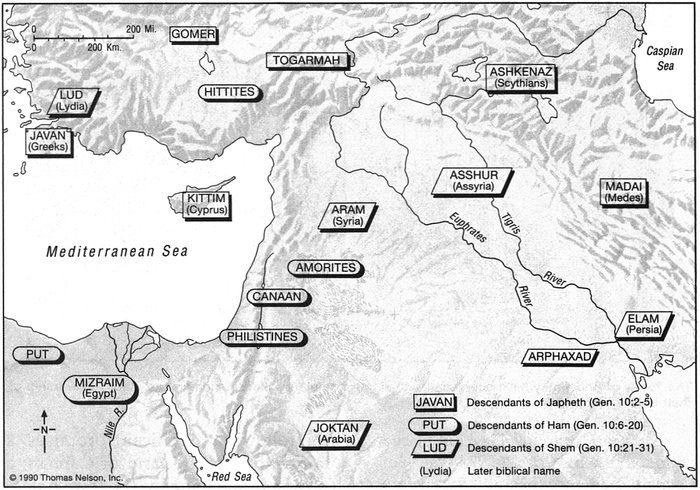What I Noticed Today (Genesis 10-12)
Genesis 10
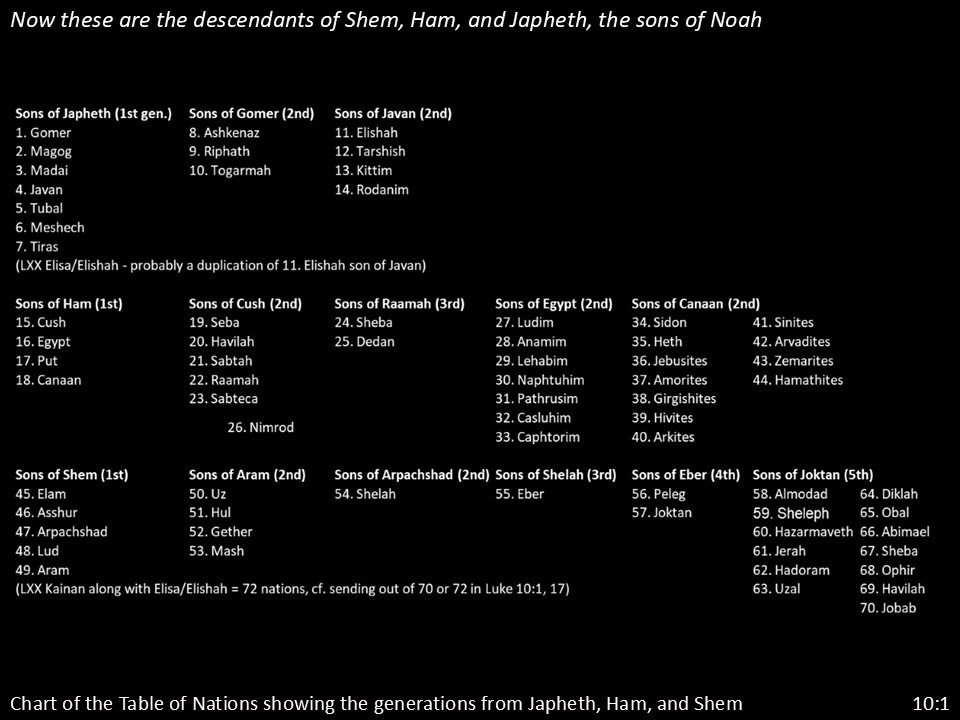
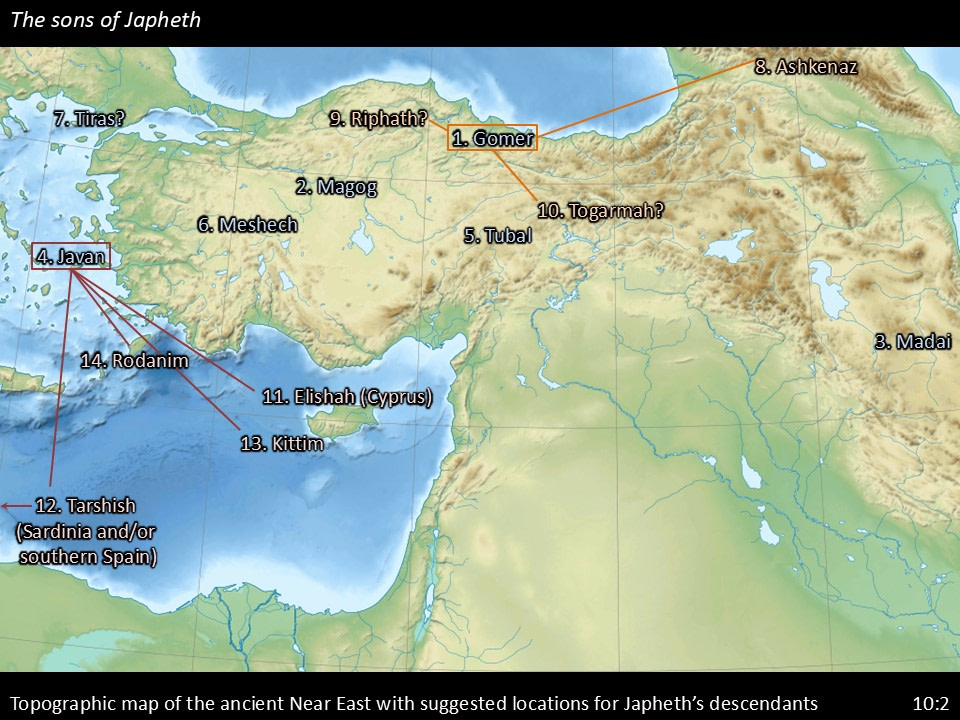
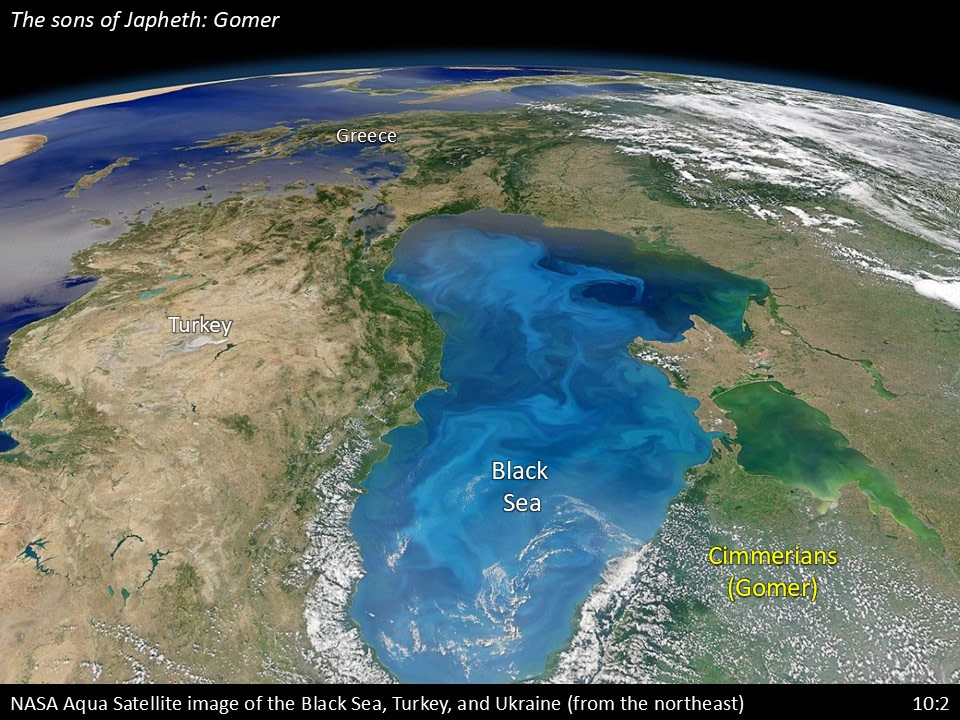
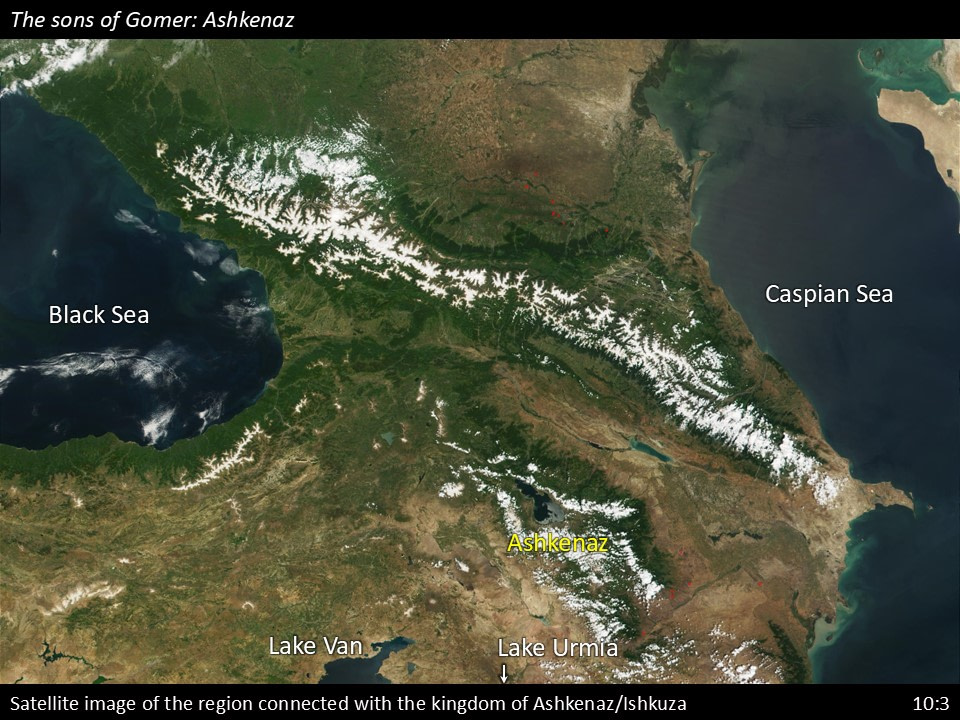
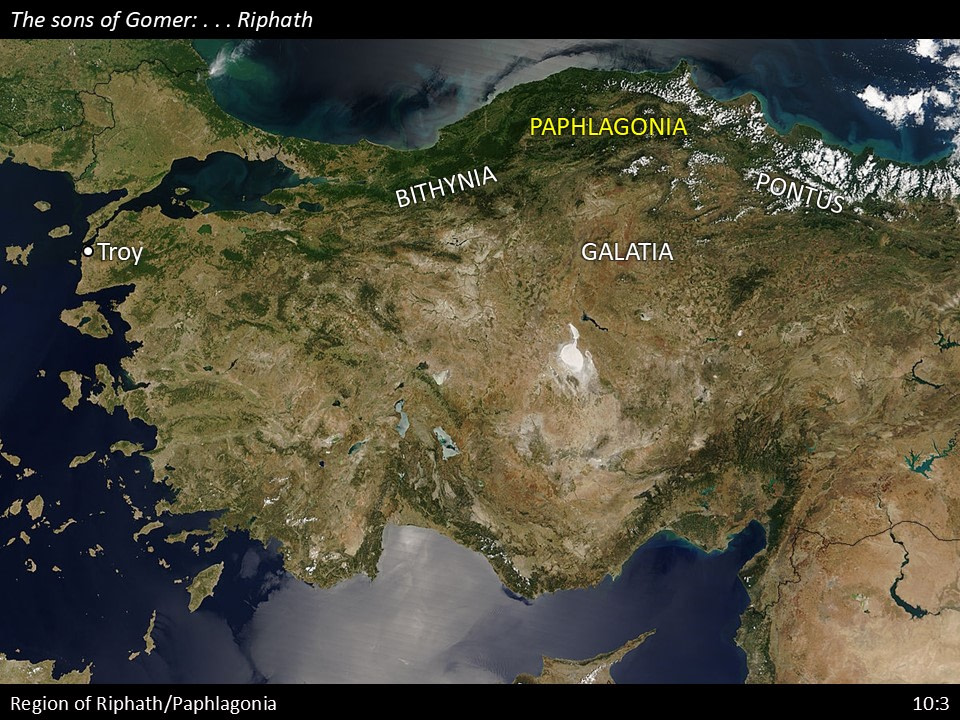
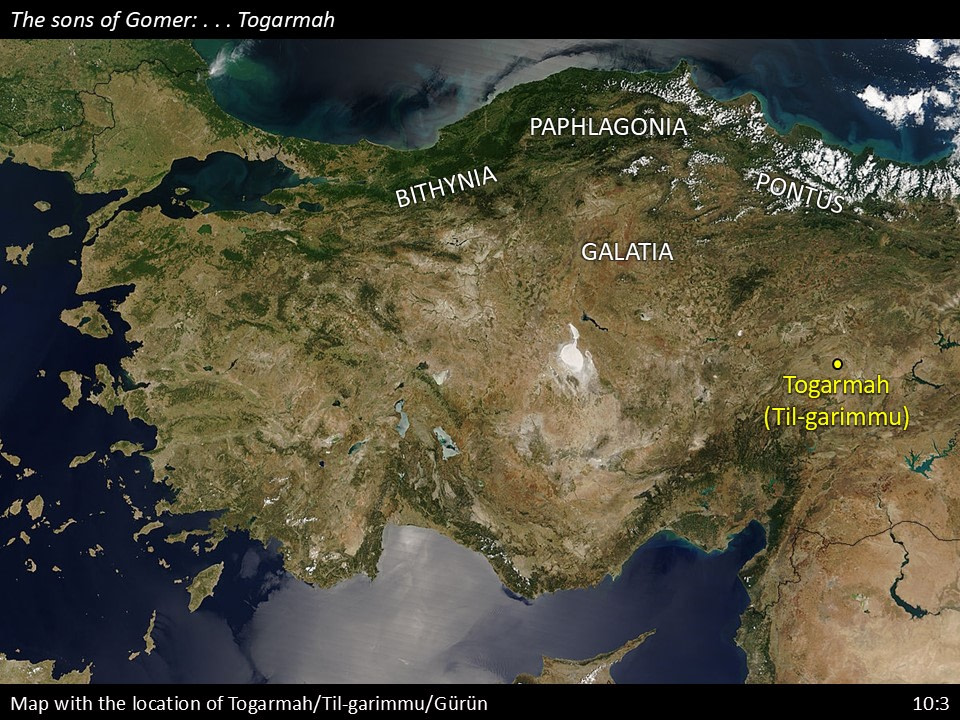
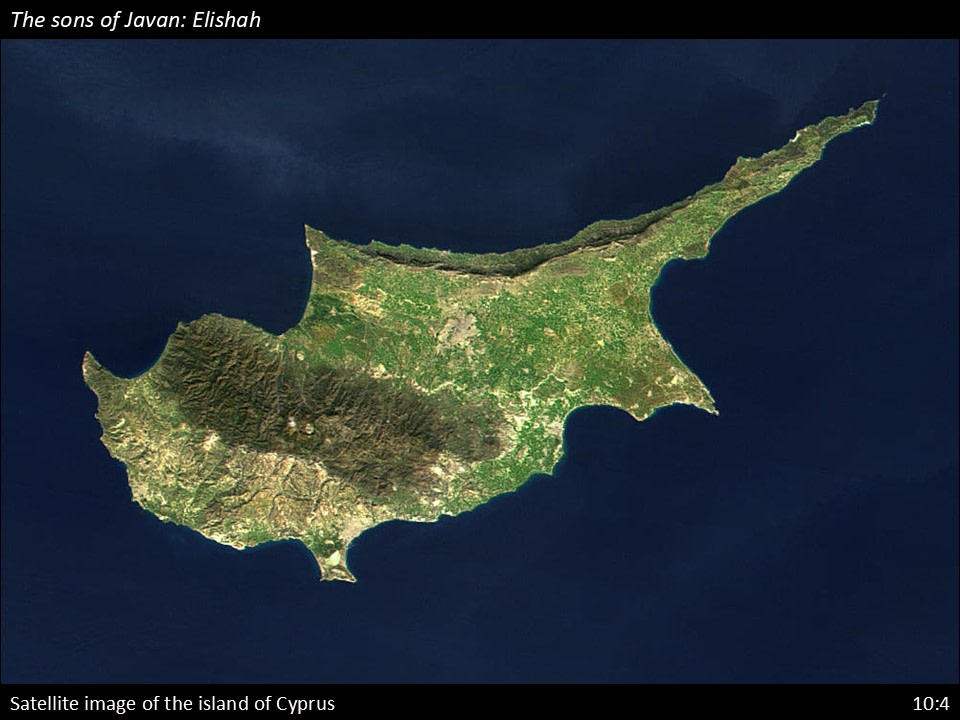
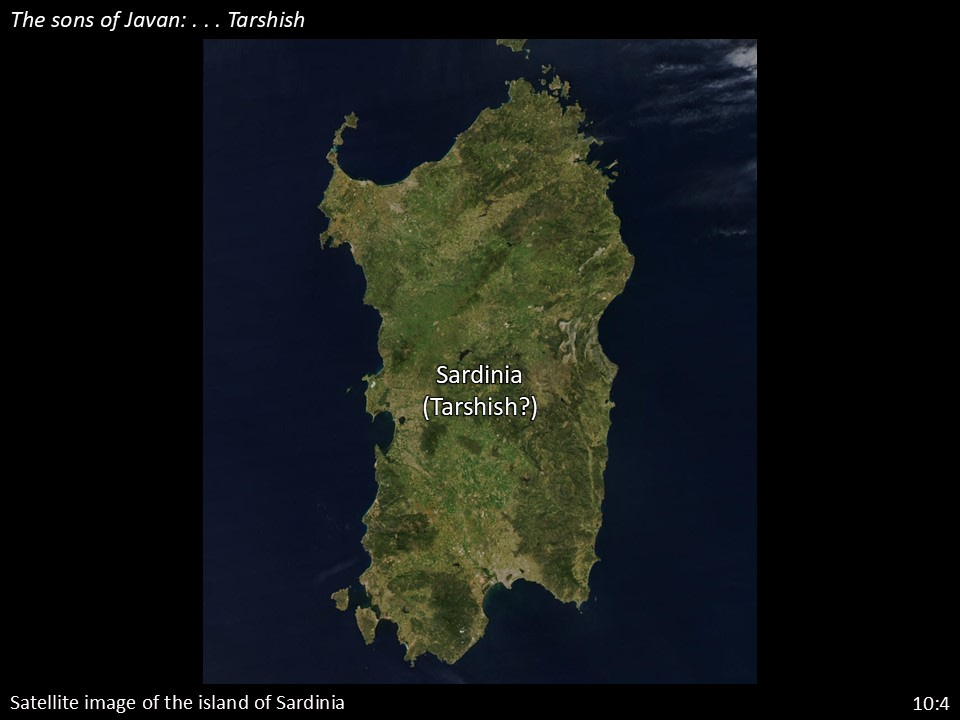
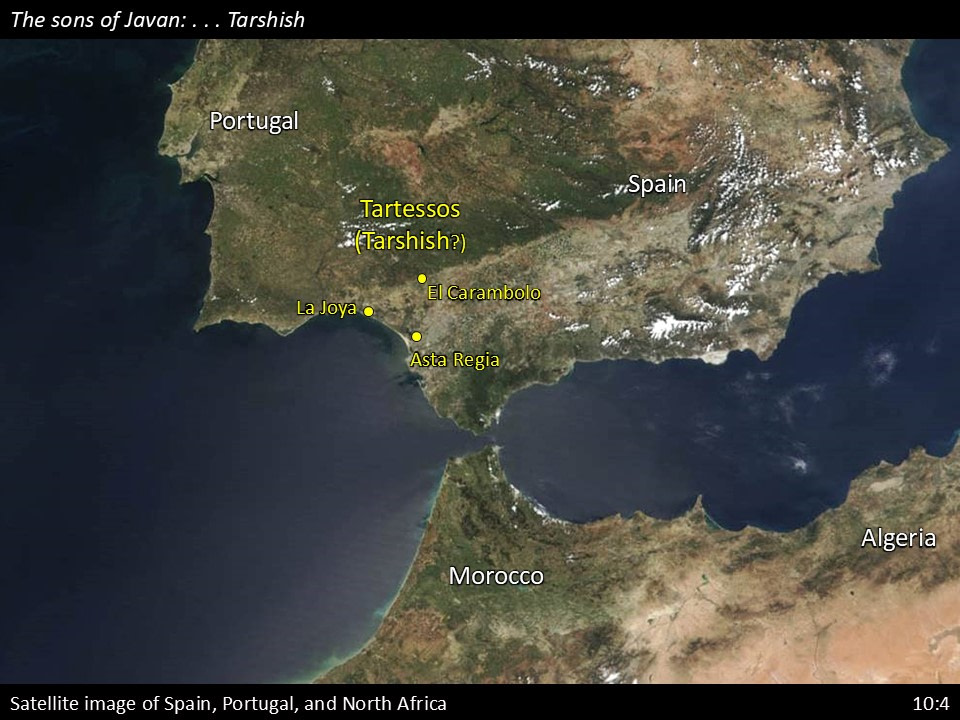
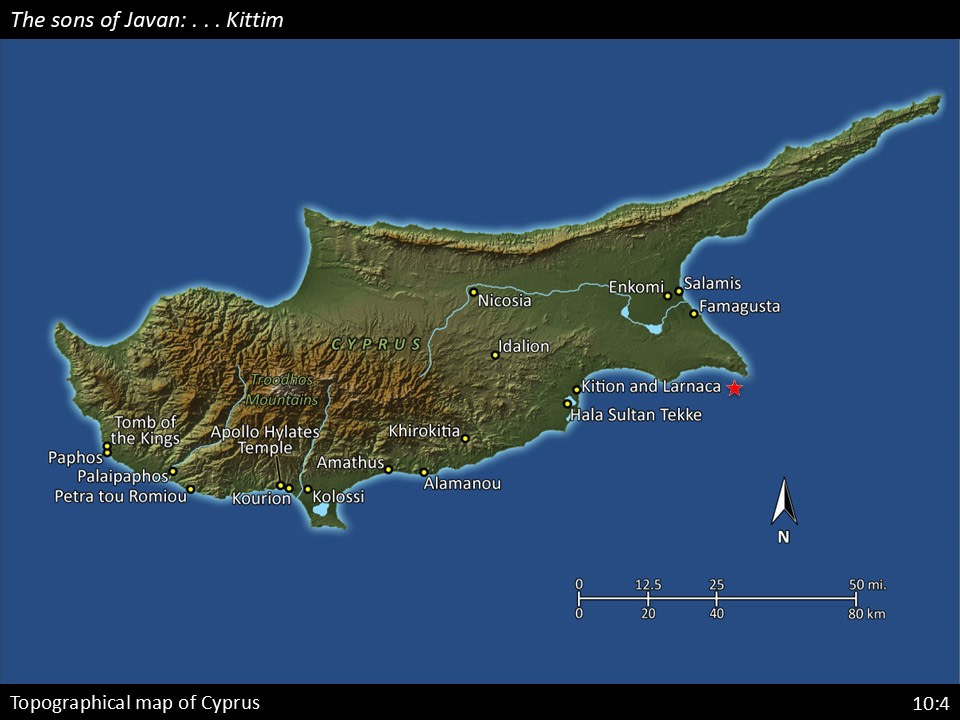
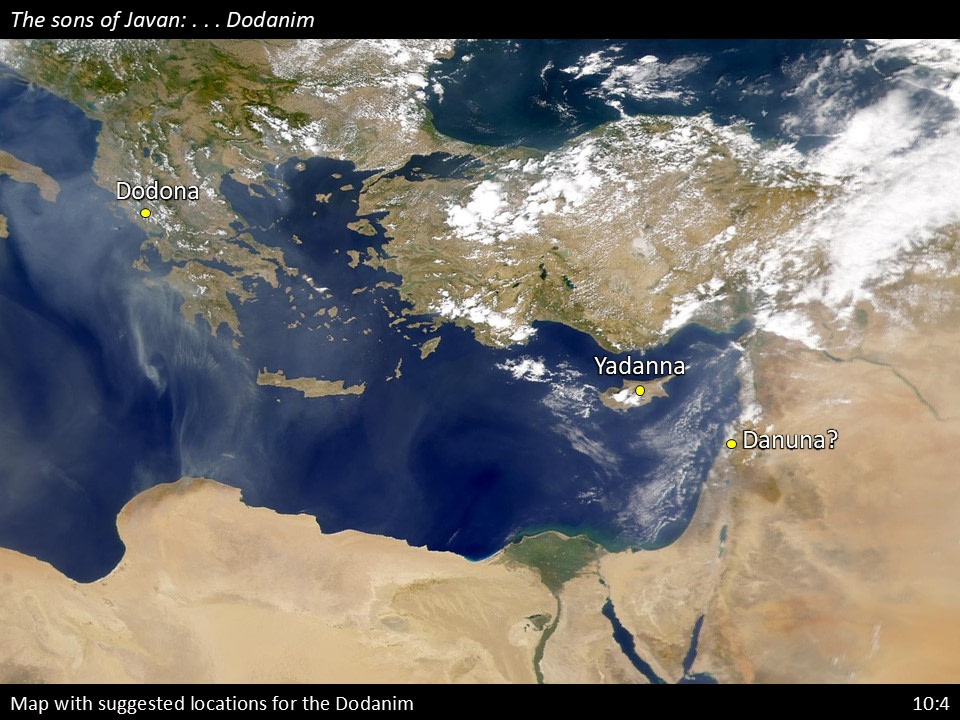
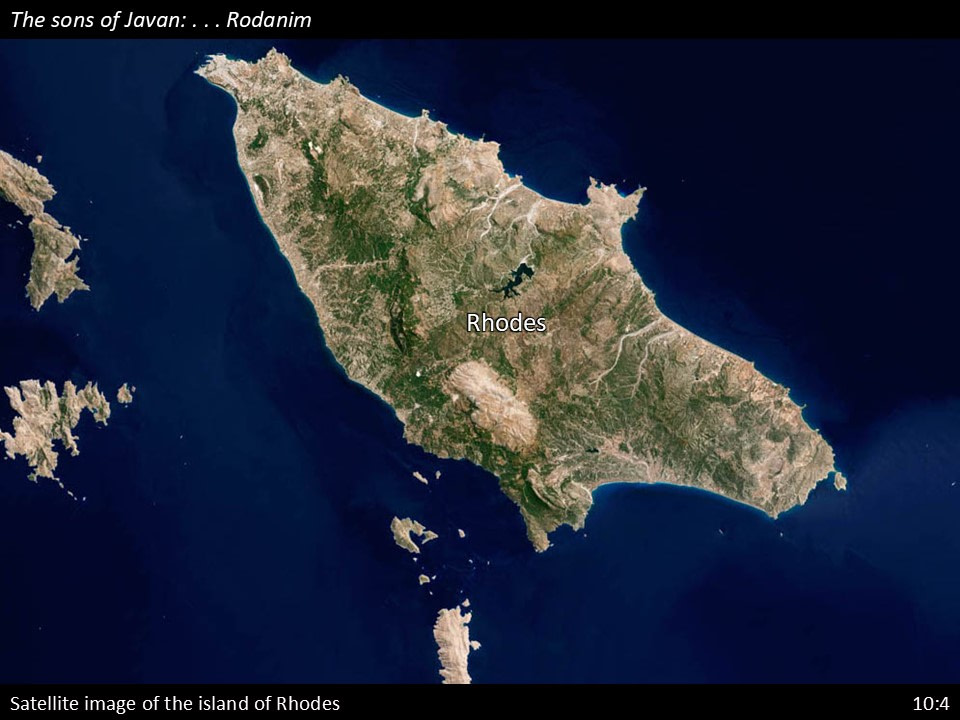
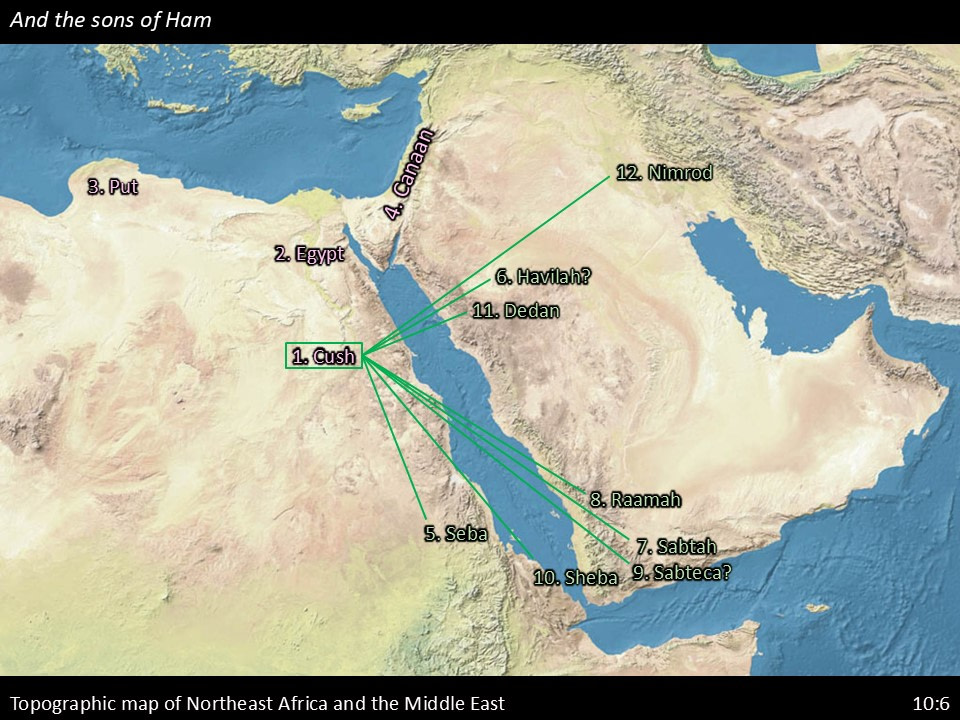
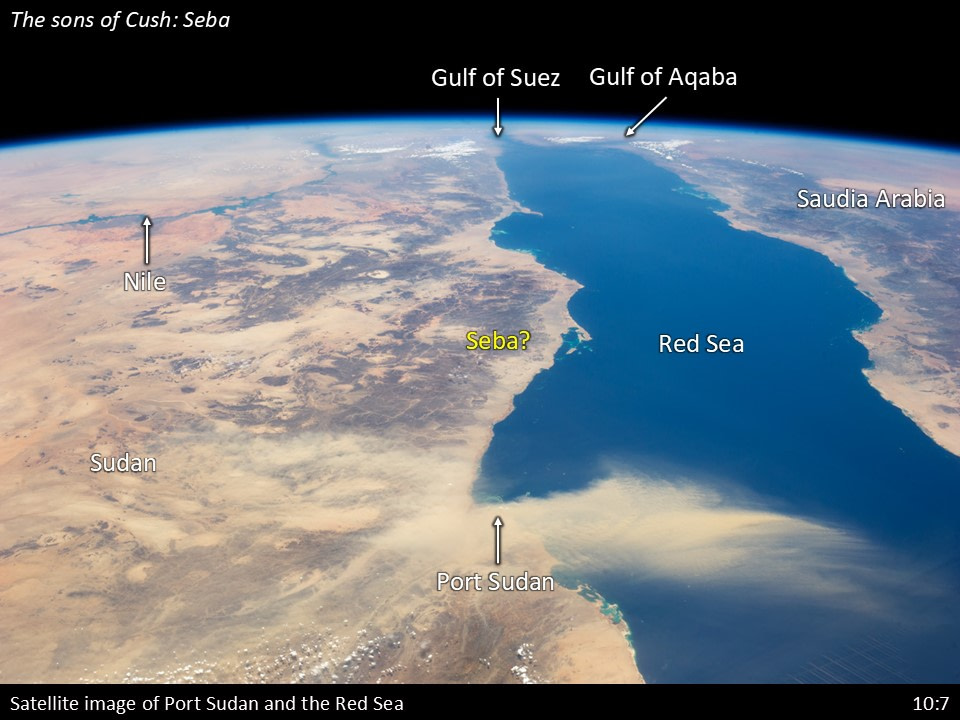
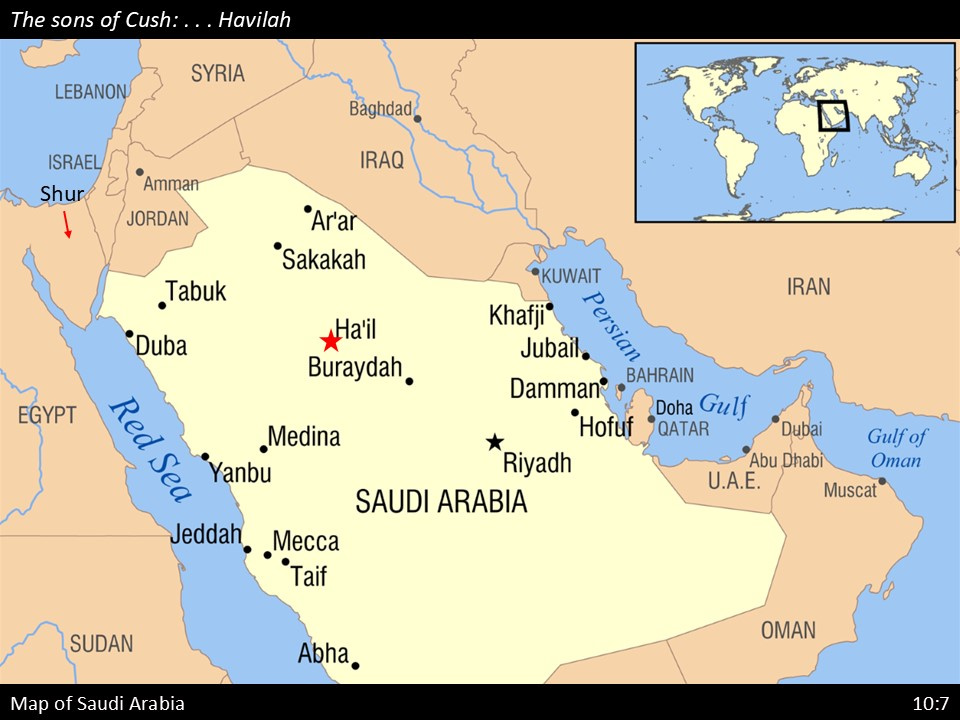
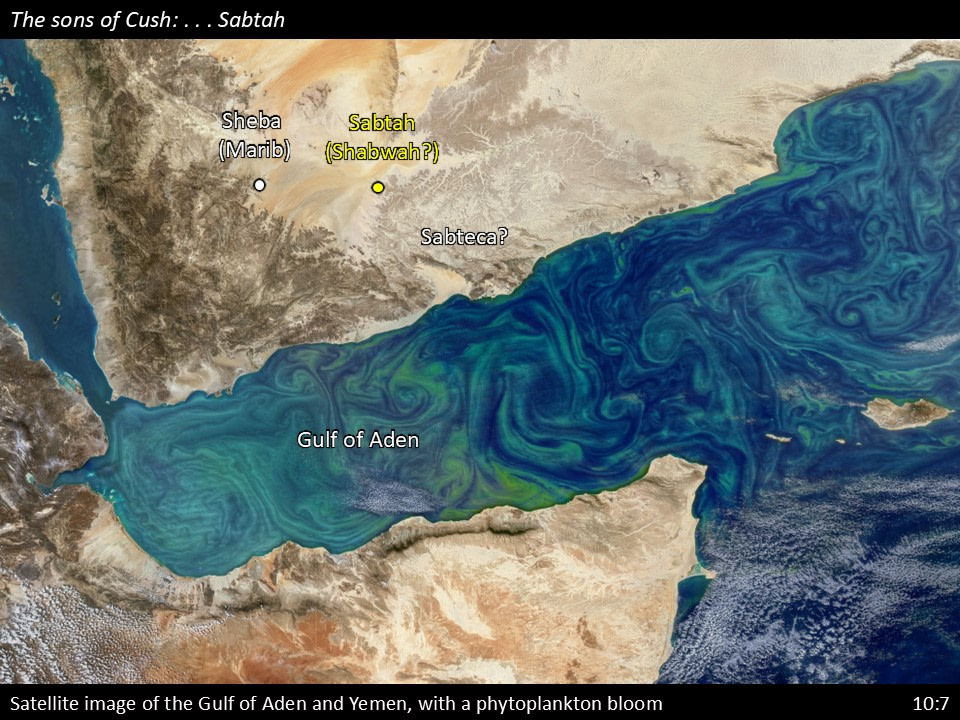
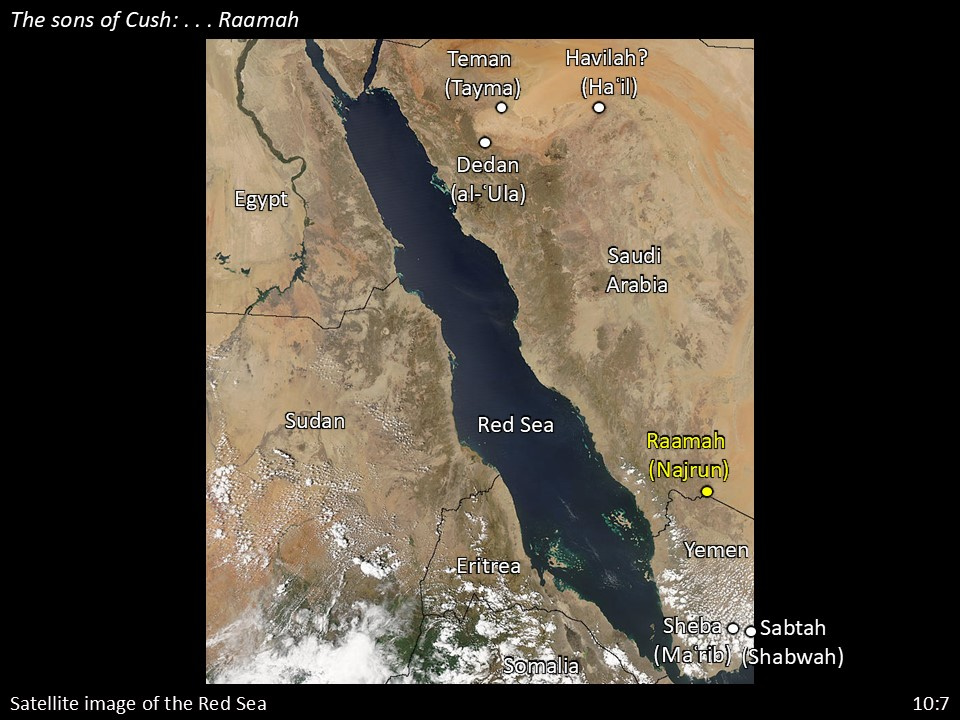
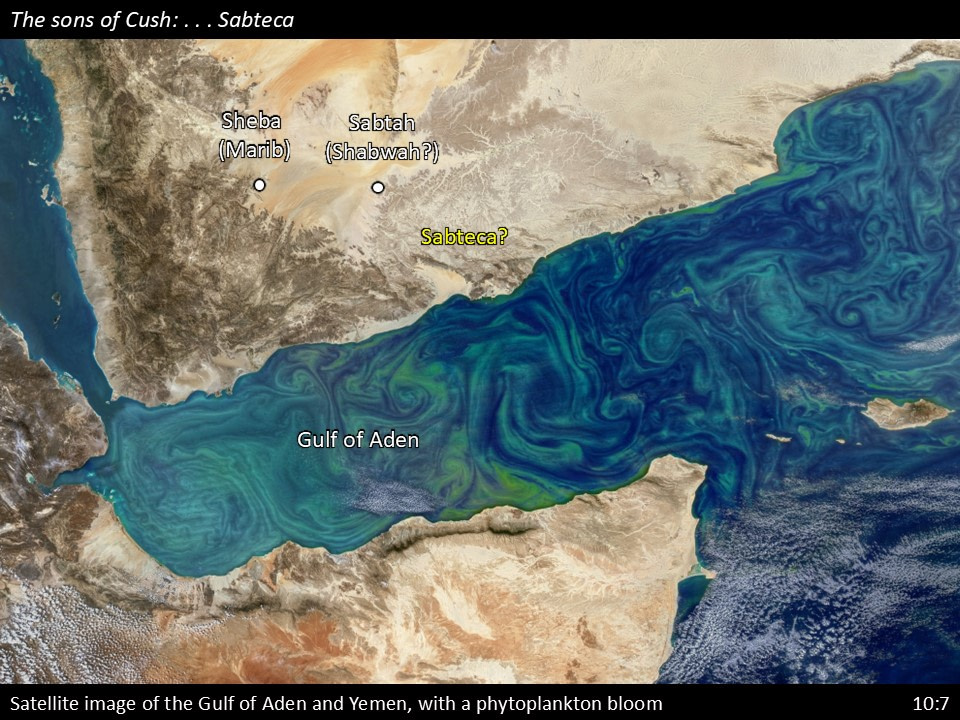
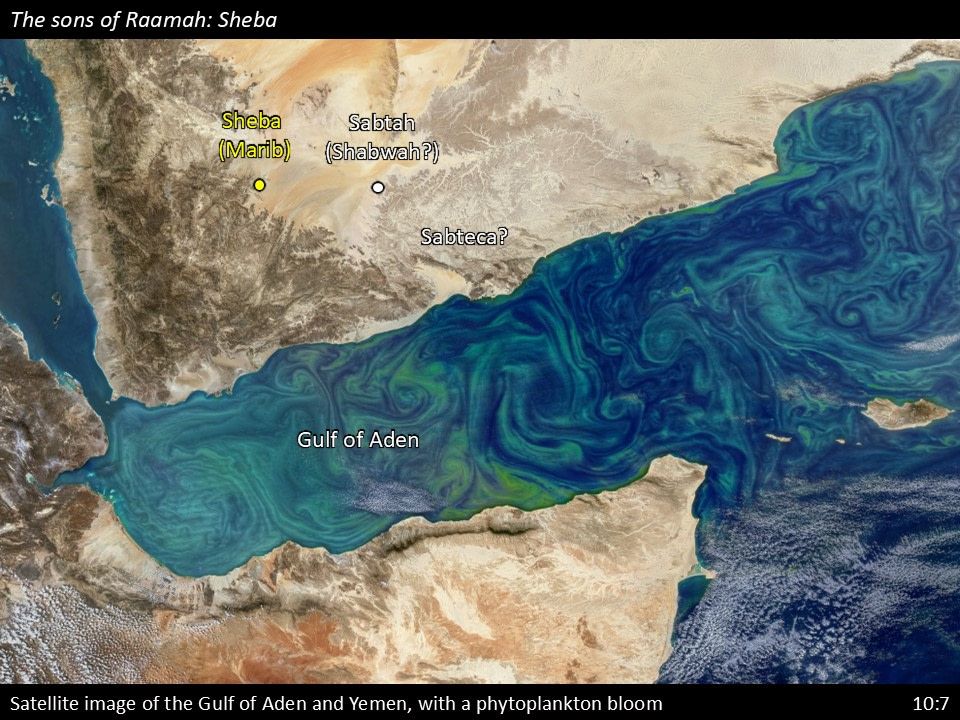
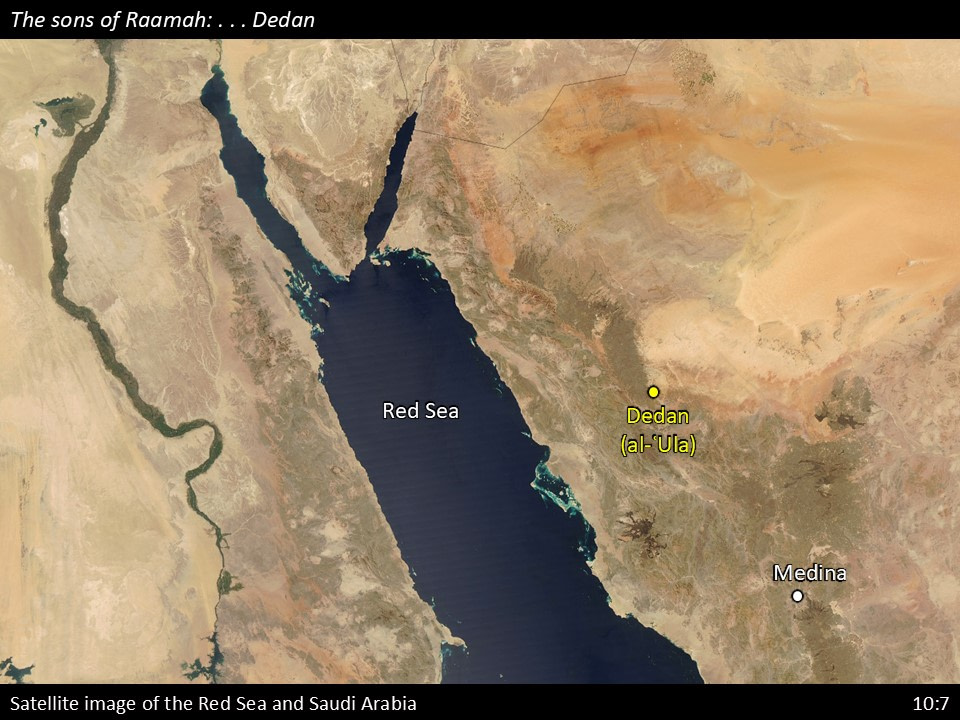
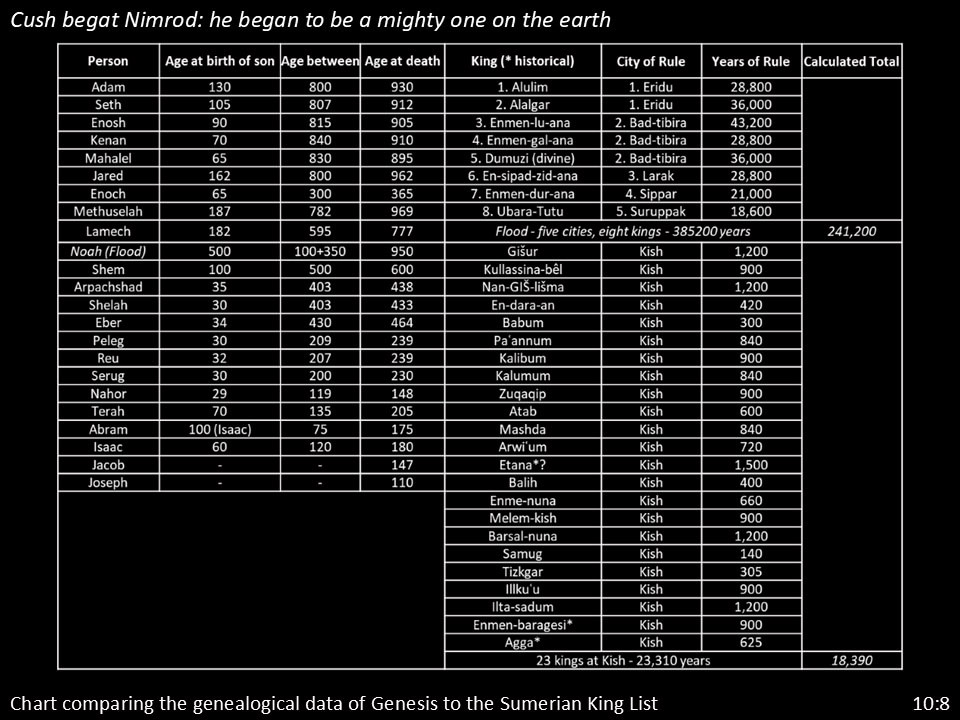
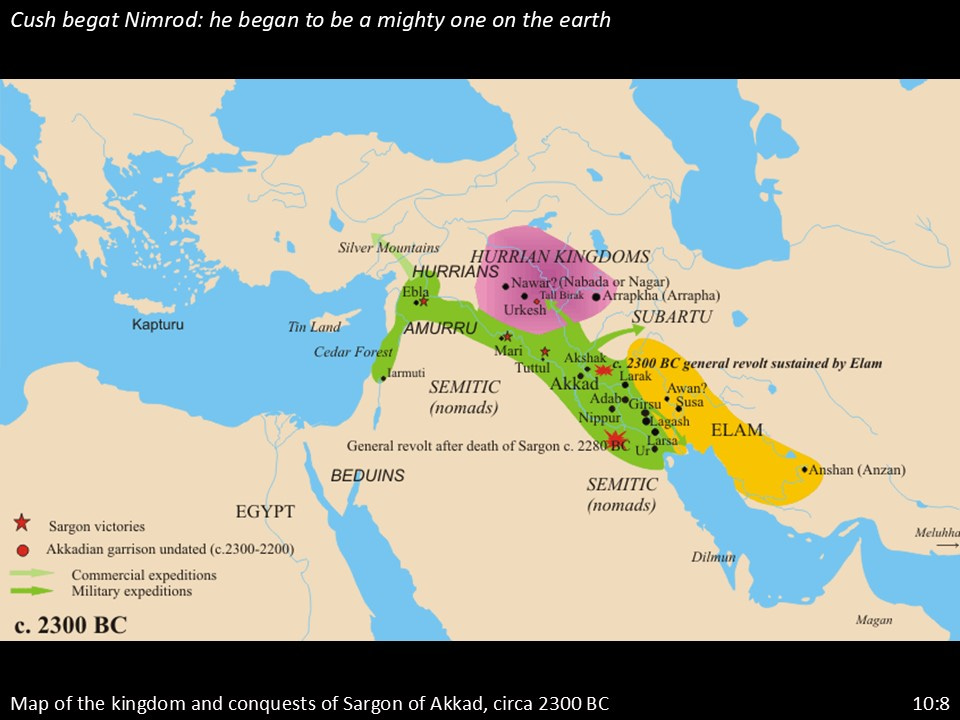
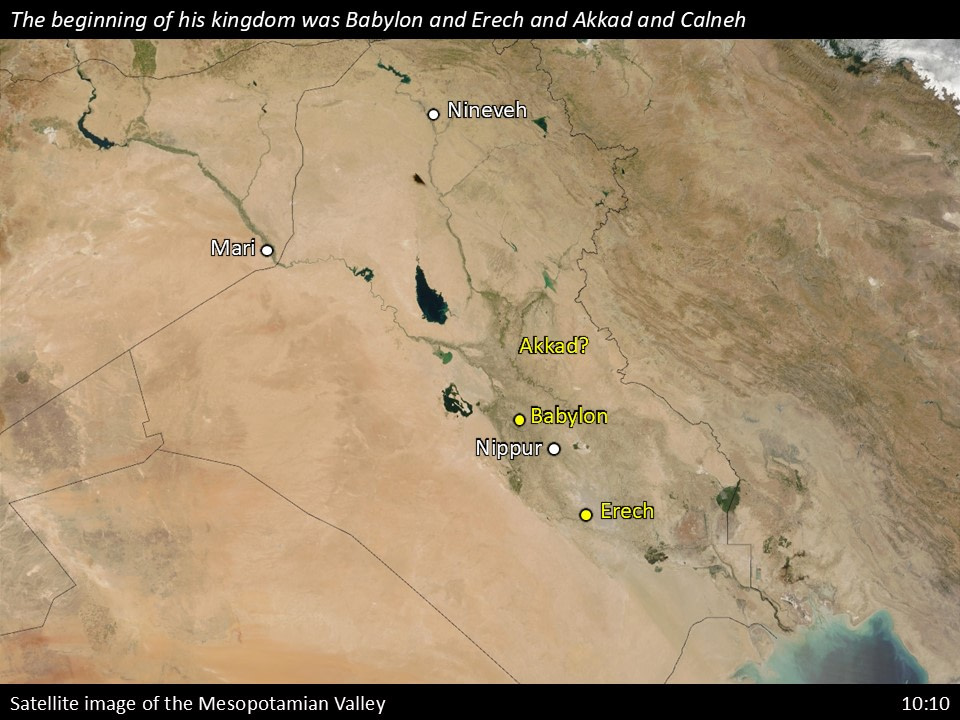
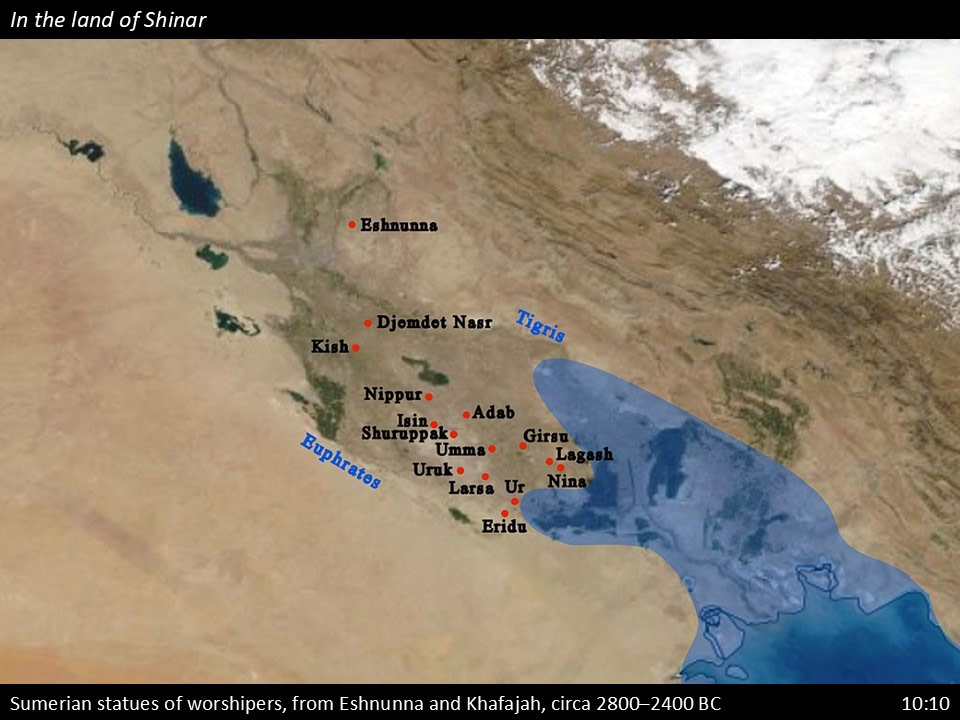
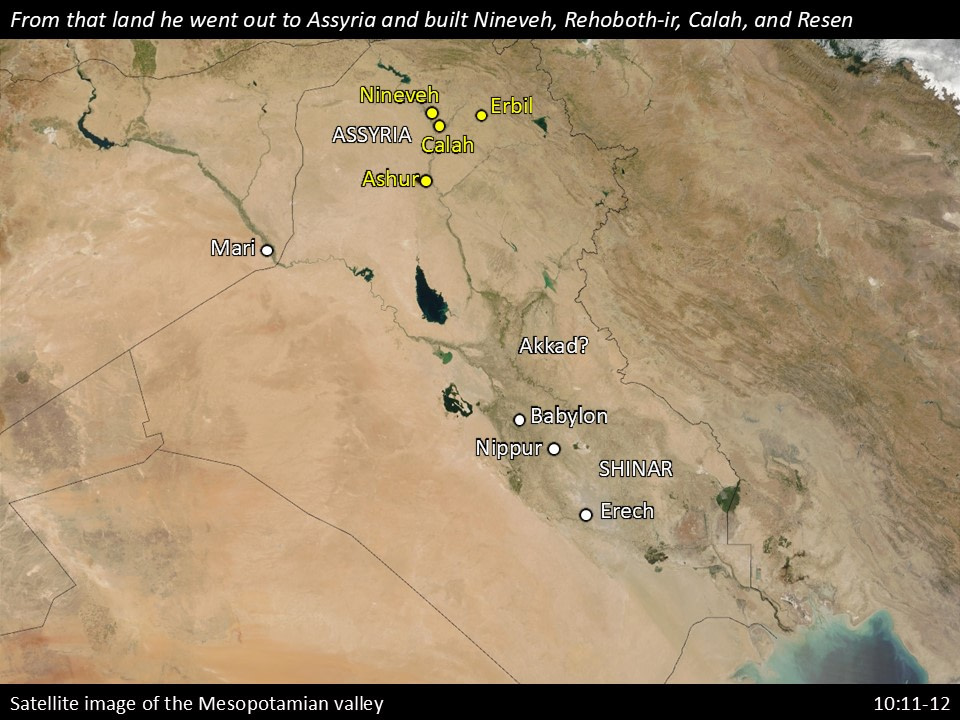
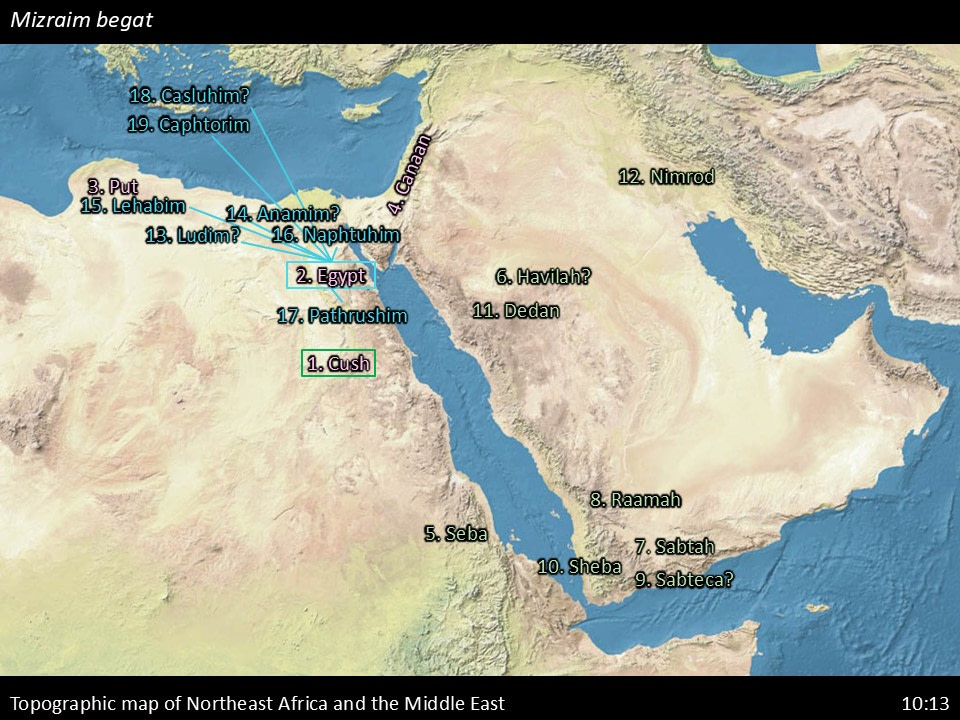
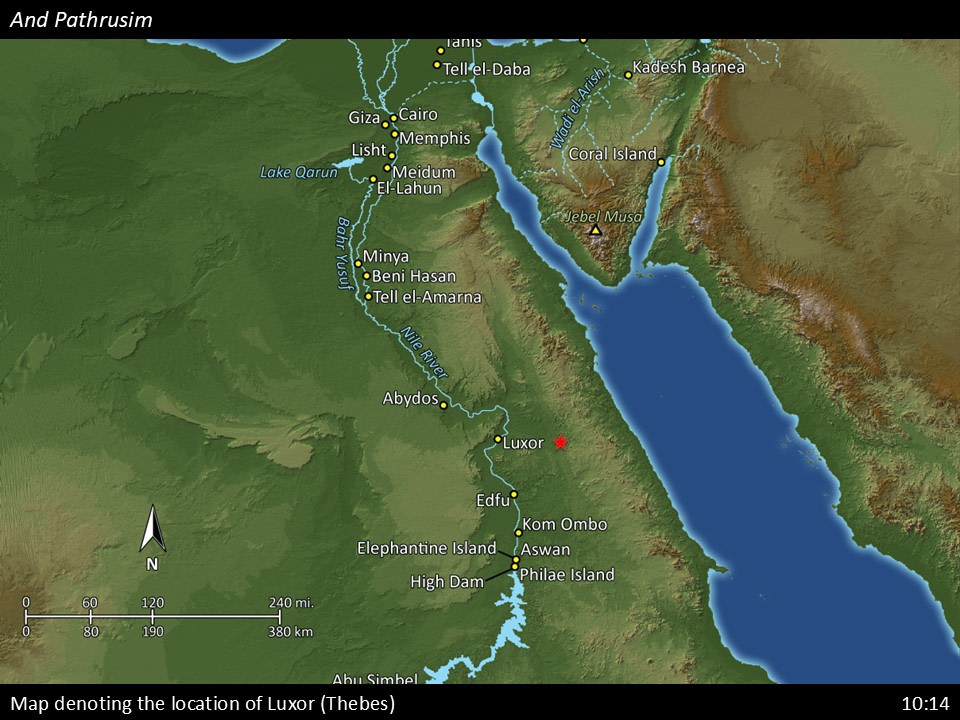
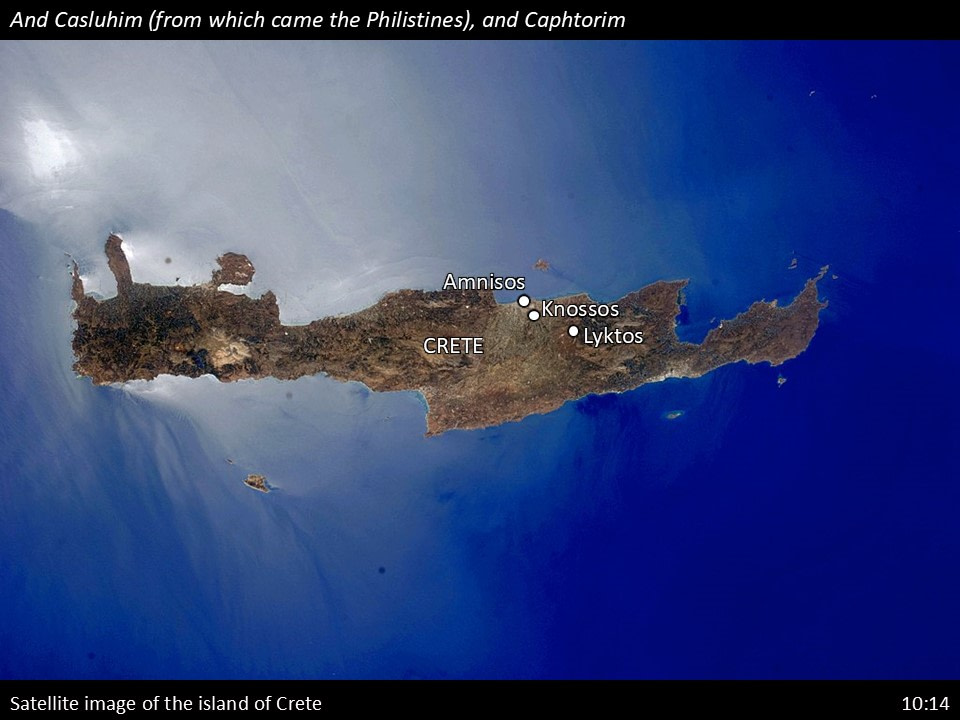
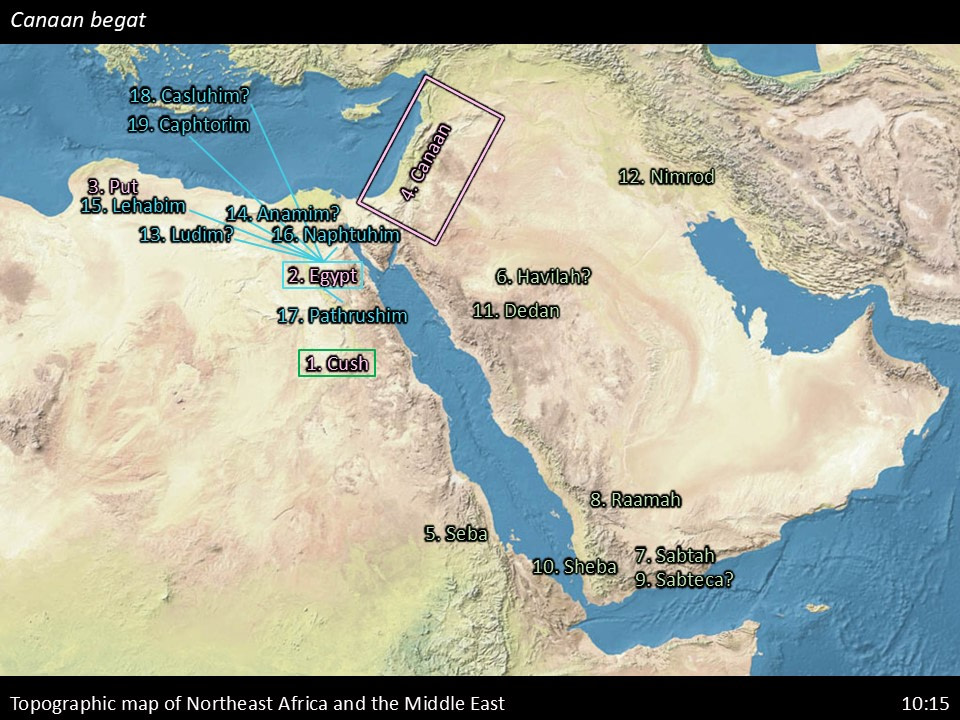
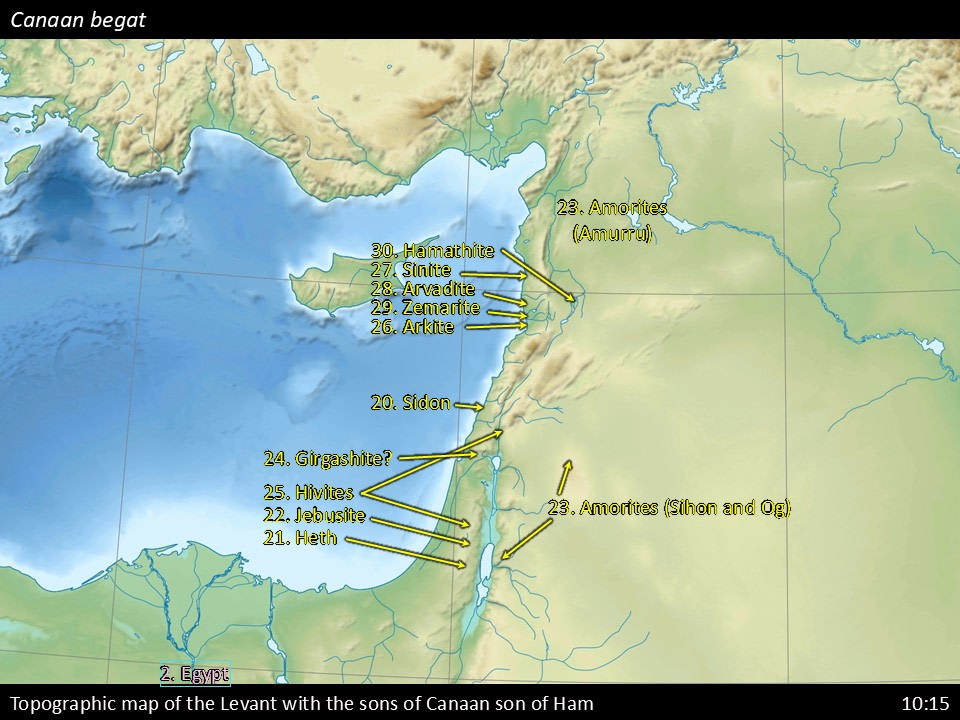
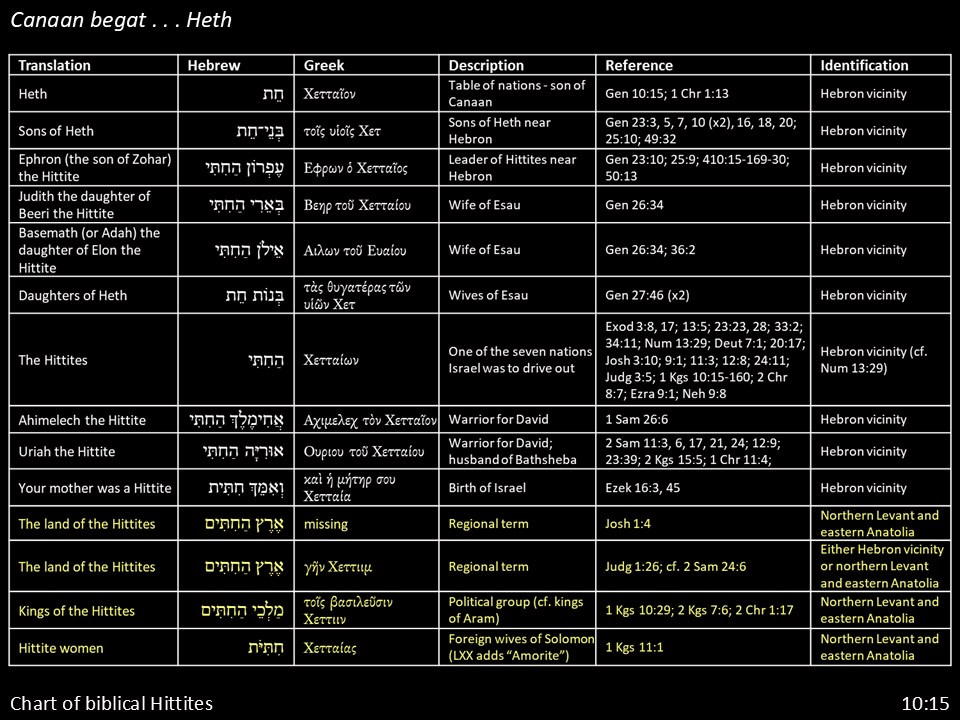
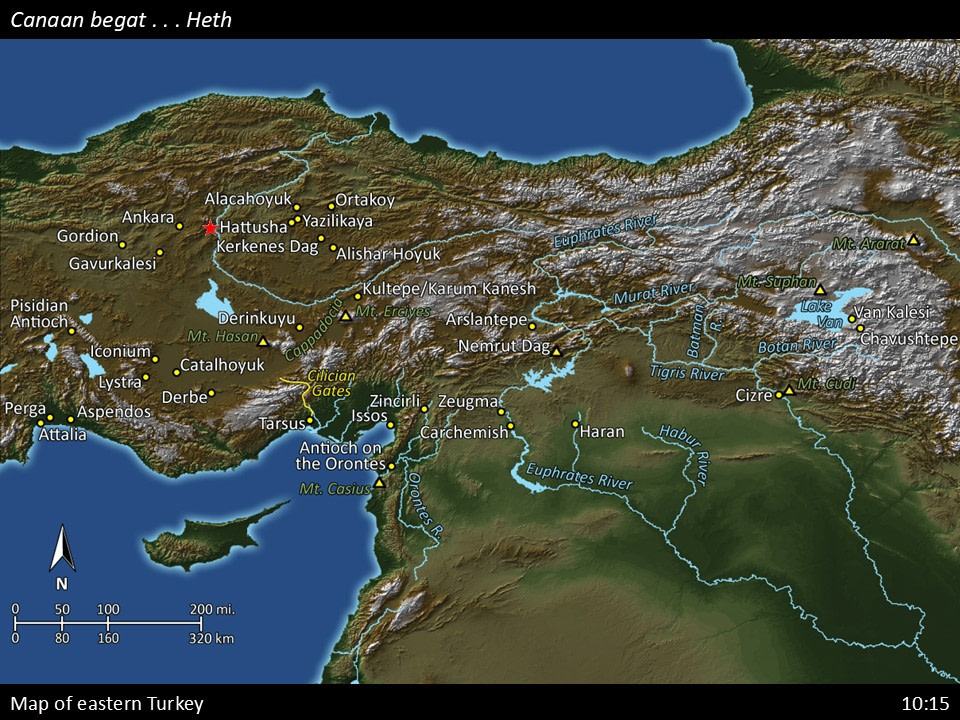
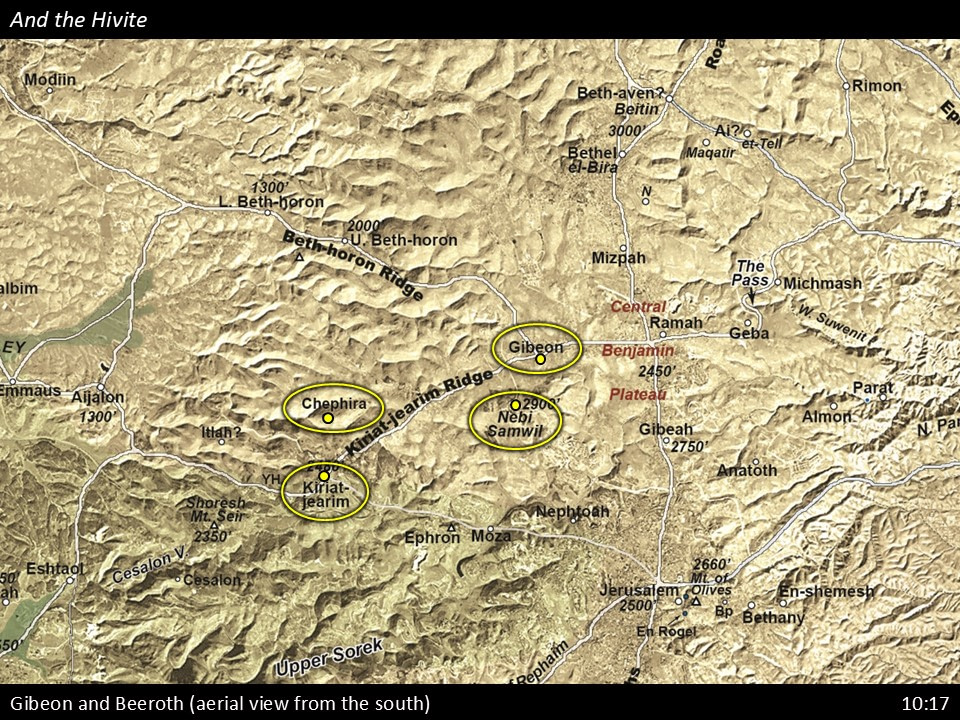
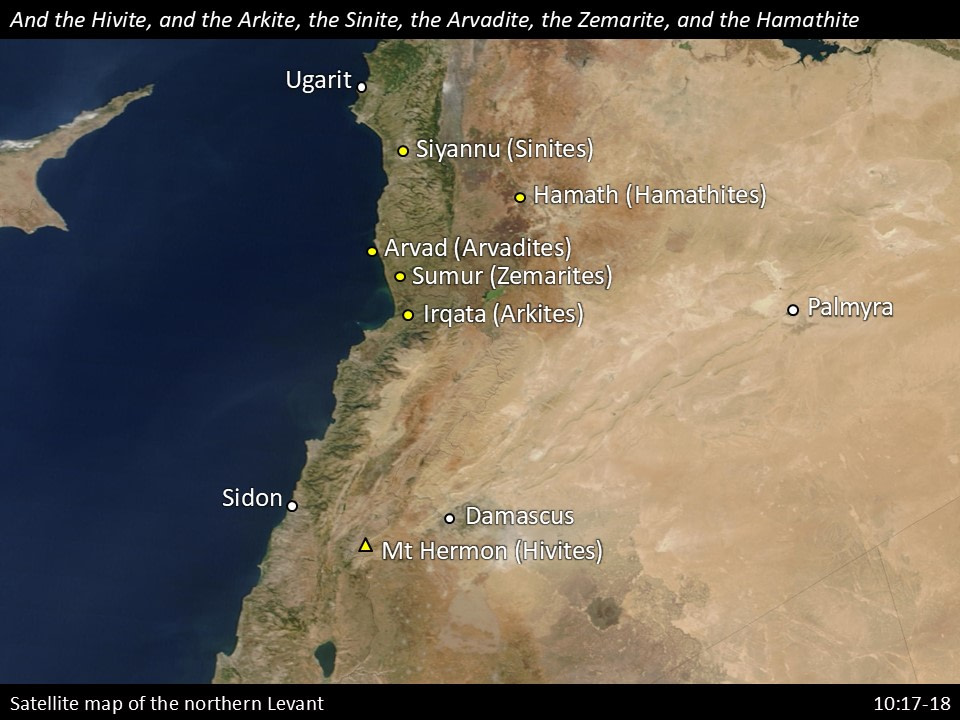
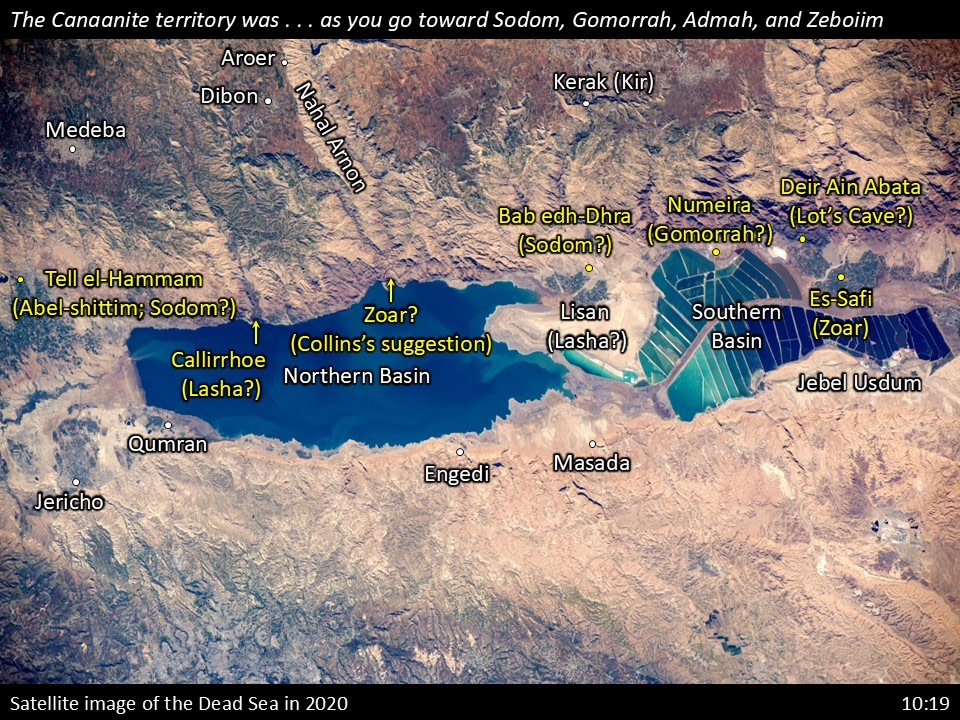
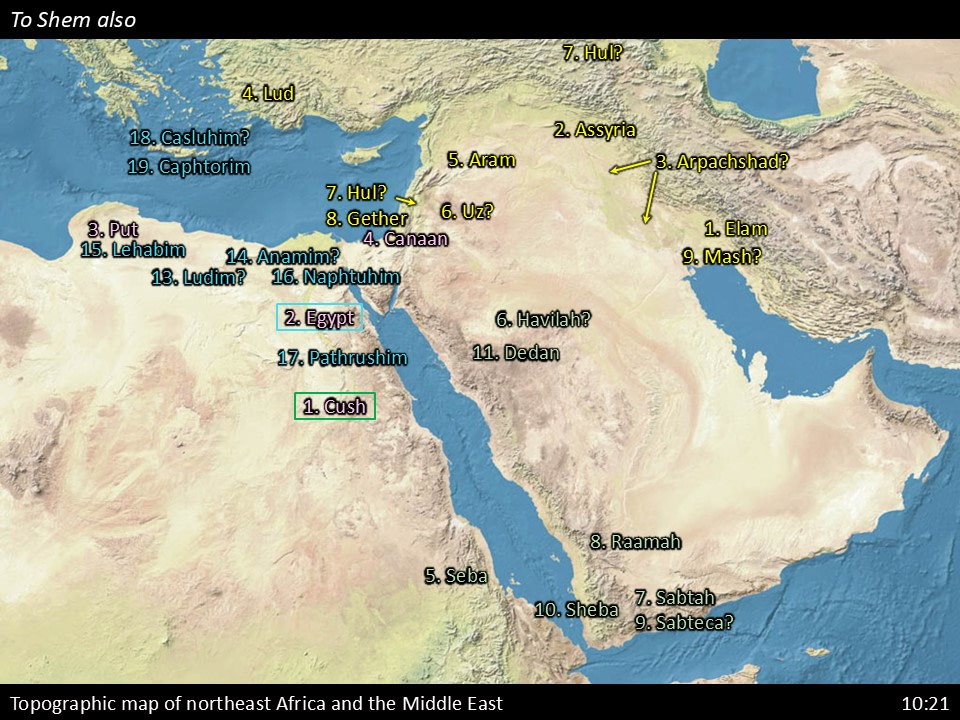
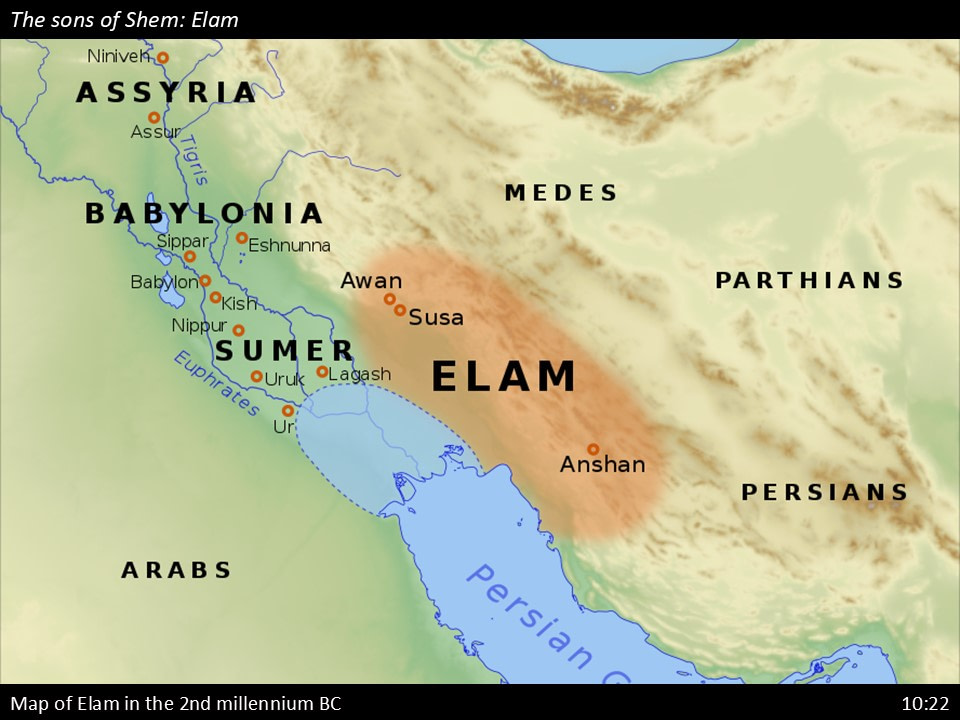
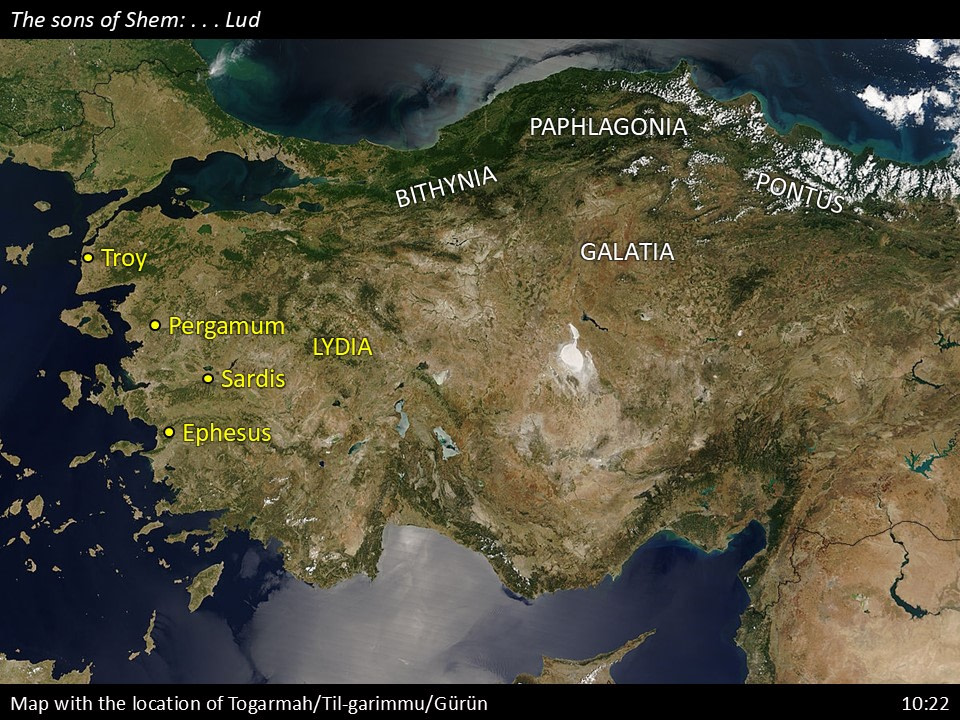
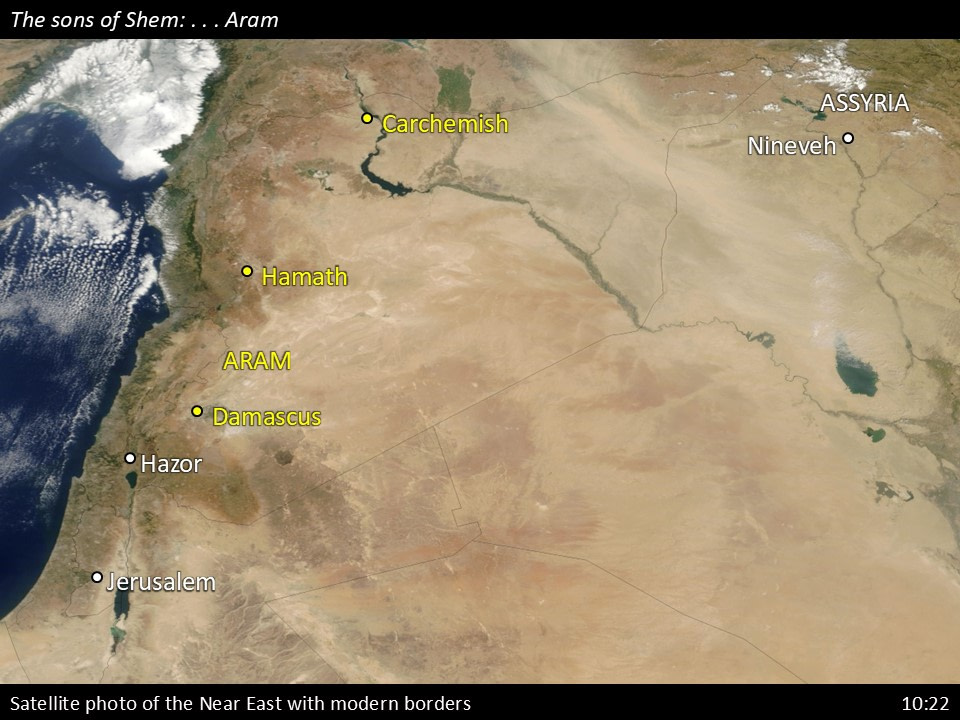
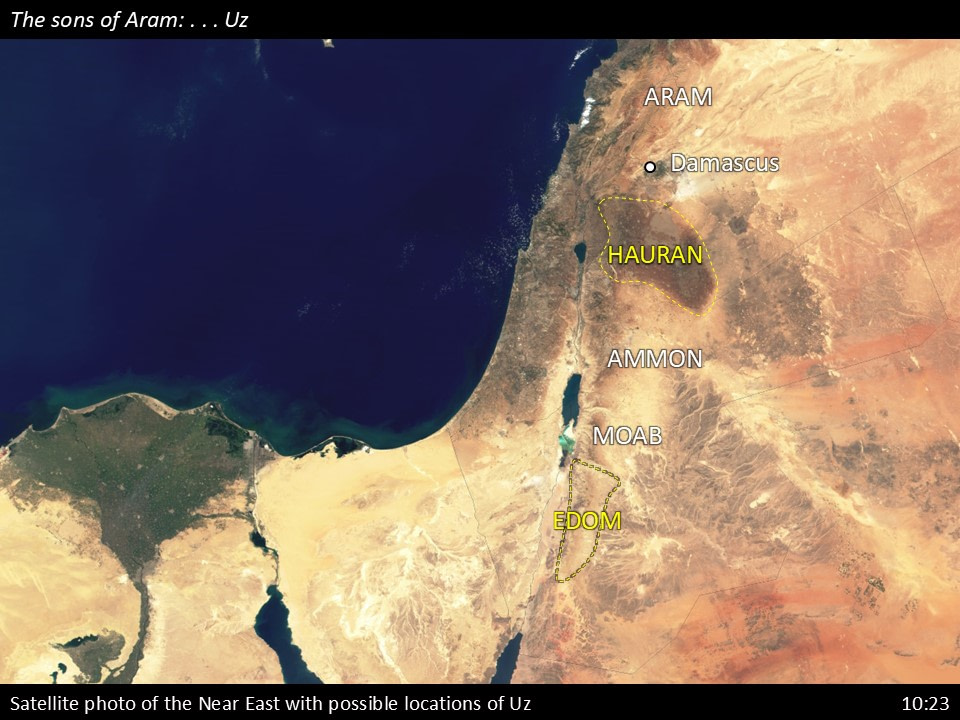
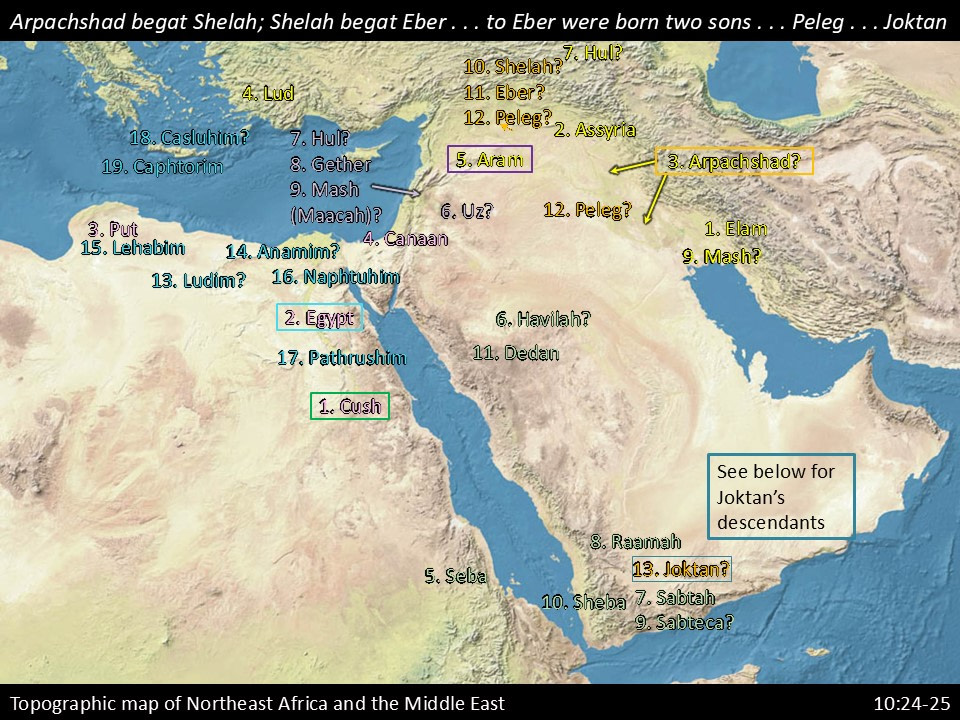
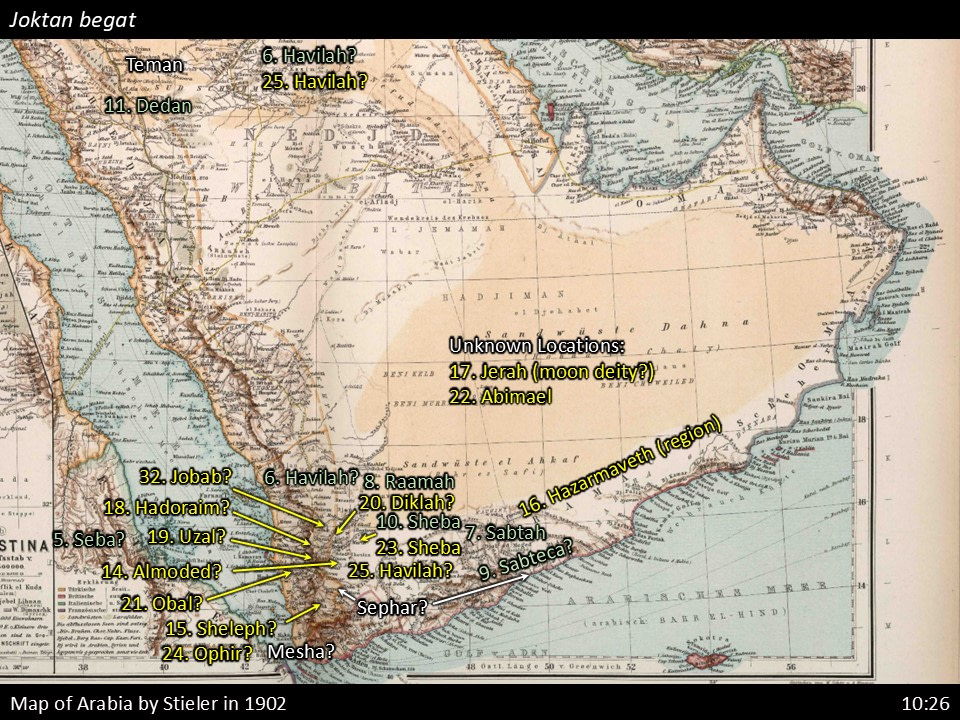
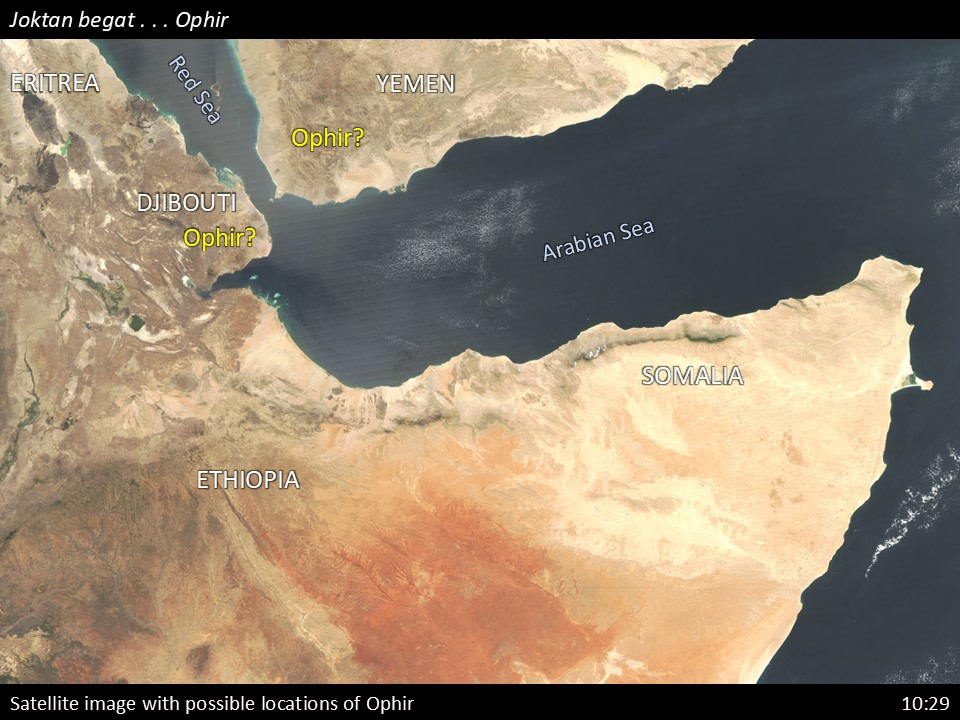
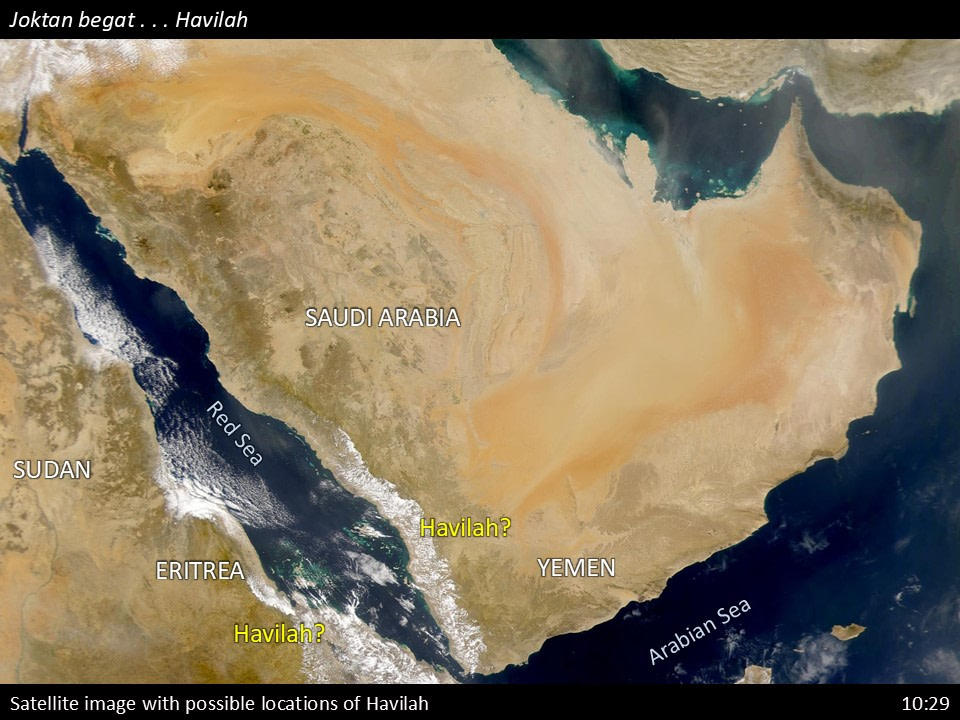
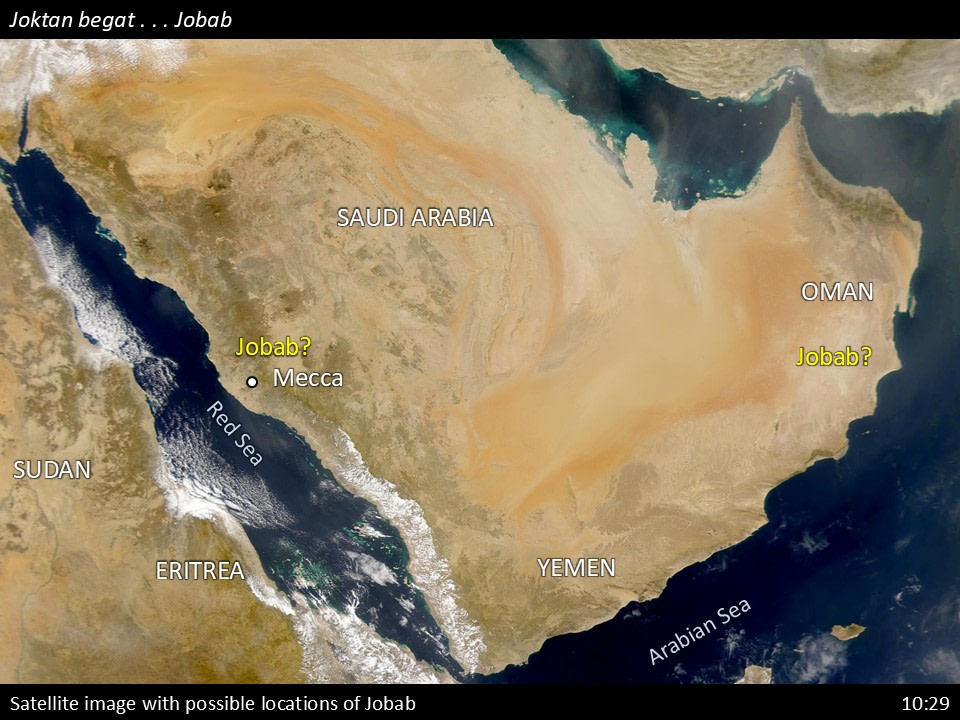
Chapter 10 is known as the table of nations, tracing the 70 descendants of Noah through his sons Japheth (14), Shem (26), and Ham (30).
Note: The table of nations is not what we commonly call a vertical genealogy tracing one descendent to the next. Rather, it is a horizontal genealogy tracing tribes that were aligned in specific territories.
In verses 2-5, the fourteen sons of Japheth are listed. They were coastland people (meaning they were close to a seacoast). They also had their own languages.
Note: Tarshish (v. 4) is Spain, Kittim (v. 4) is Cyprus.
Note: The fact that they had their own languages suggests this description took place after the Tower of Babel (chapter 11). These tribes were all gathered in northern territories.
In verses 6-20, the thirty descendants of Ham are listed.
Note: The tribes of Ham’s descendants lived in the eastern and southern territory of Mesopotamia (northern Africa).
Note: Cush (v. 6) is Ethiopia, Mizraim (v. 6) is Egypt, Put (v. 6) is Libya, Canaan (v. 6) is Palestine, Asshur (v. 11) is Assyria.
Note: Verse 8 inserts the story of Nimrod, a powerful hunter who founded Babylon, Nineveh, and Assyria. The language also changes from “these are the sons of” to “fathered.”
Note: Verses 13-14 describe Mizraim (also translated Egypt). They lived in territories from North Africa to Crete.
Note: Verses 15-20 describe the Canaanite tribes who lived in the Promised Land.
In verses 21-31, the 26 descendants of Shem are listed.
Note: The tribes of Shem’s descendants lived in the eastern hill country and desert (modern-day Arabian Peninsula). Aram (v. 22) is Syria and Mesopotamia.
Genesis 11
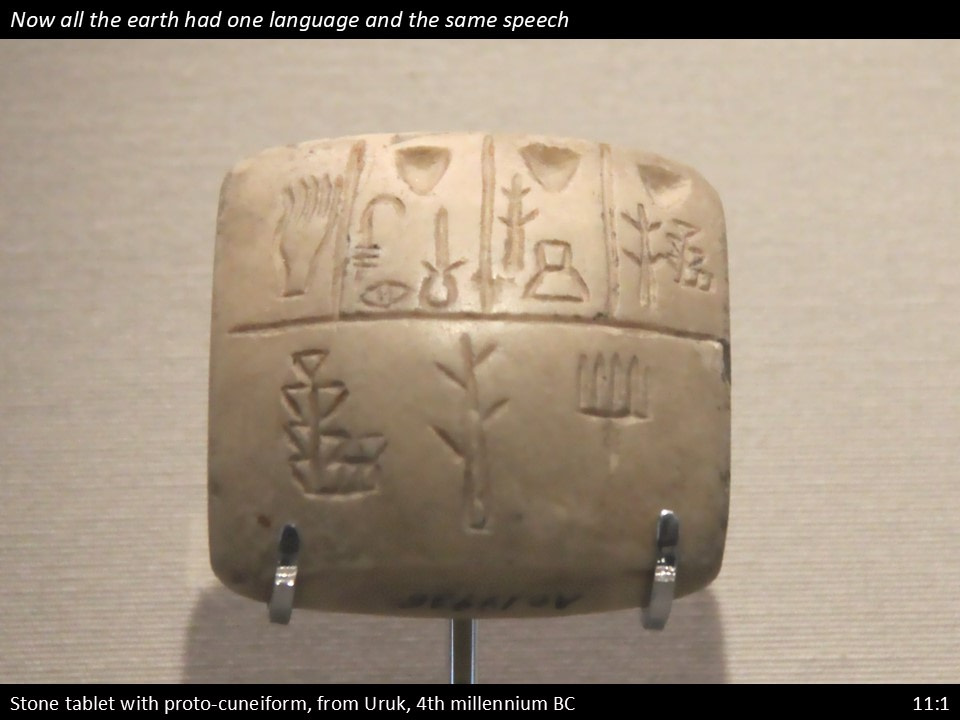
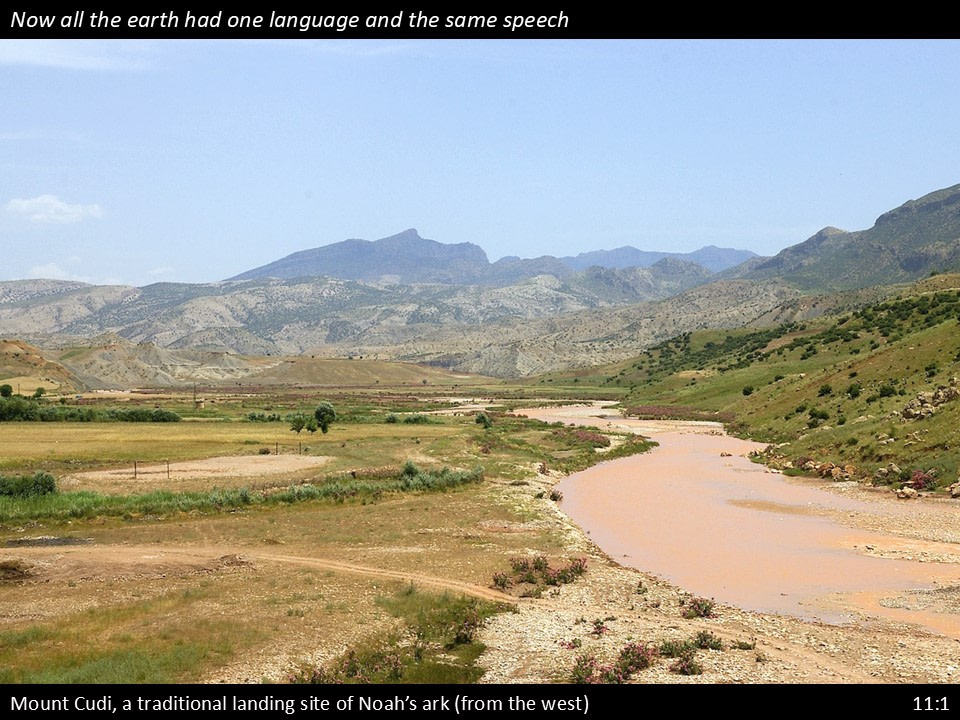
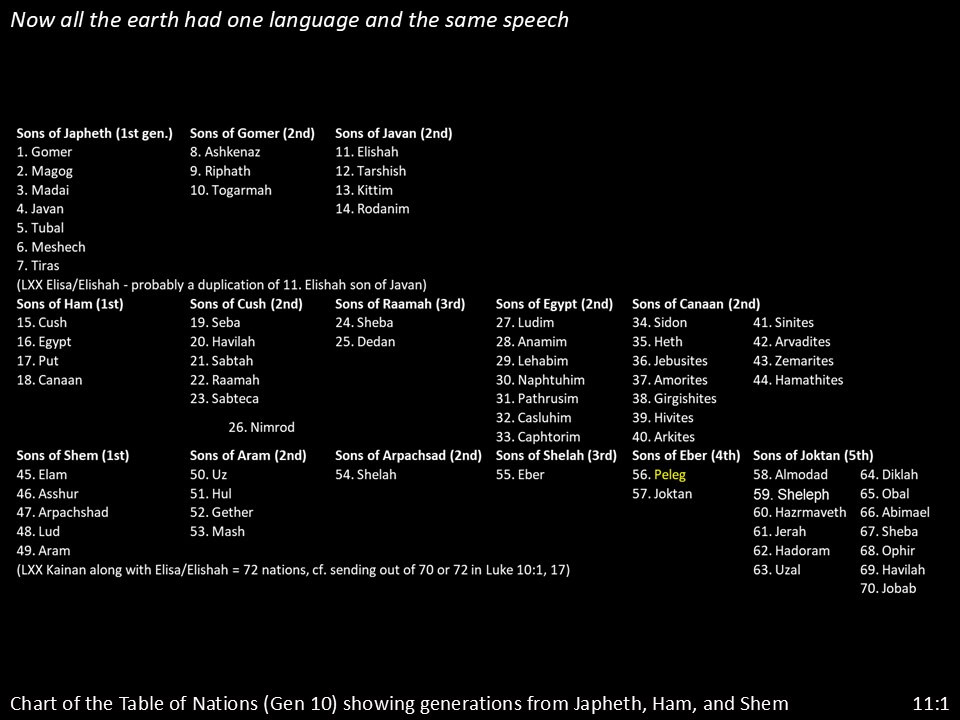
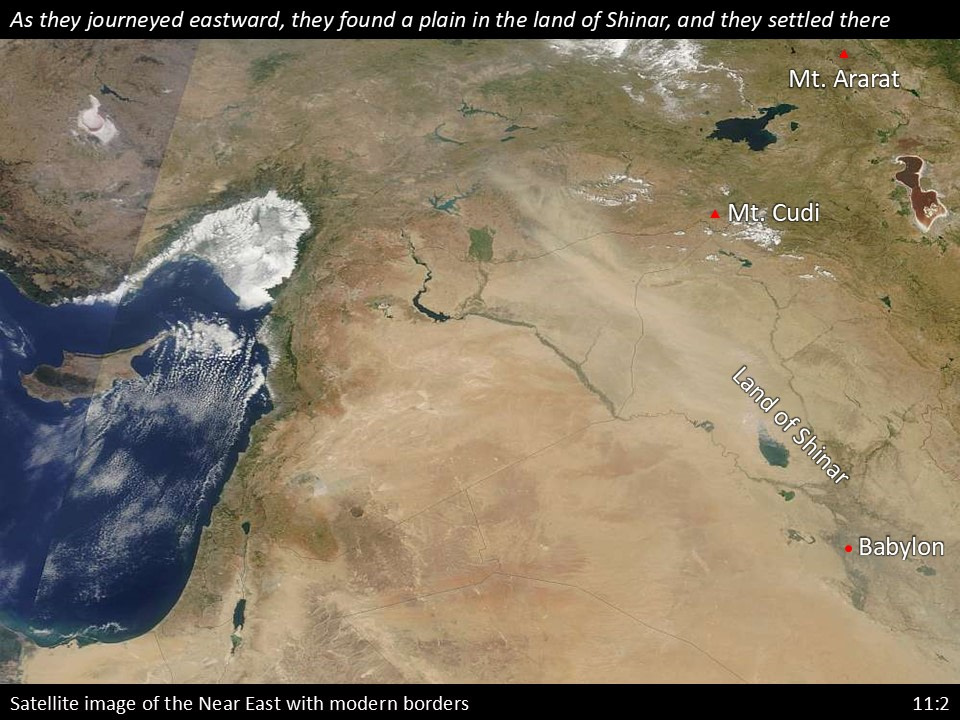
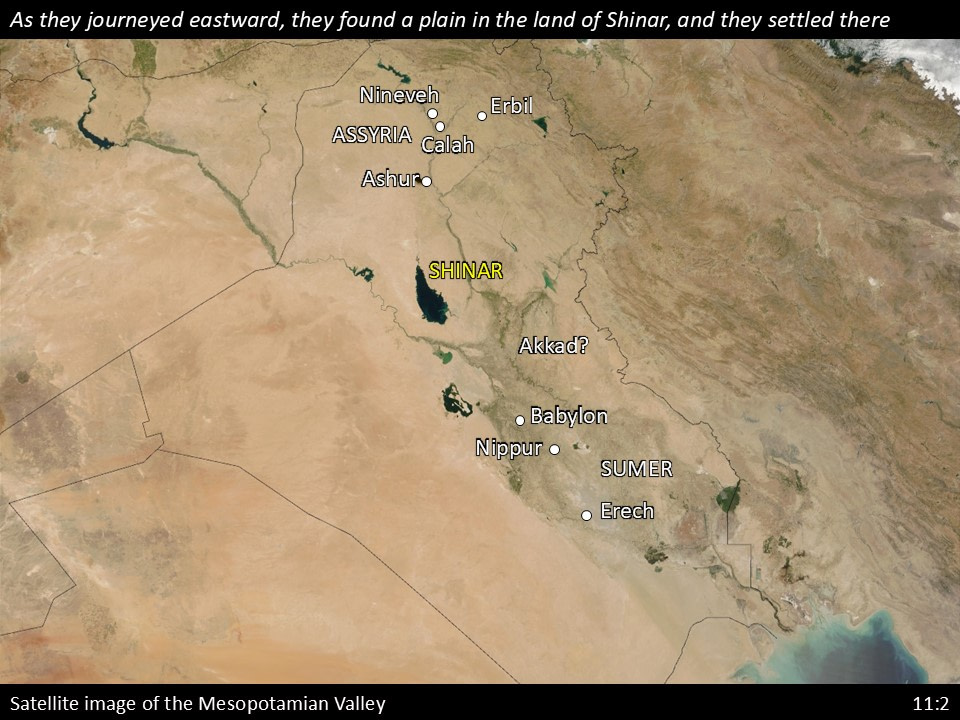
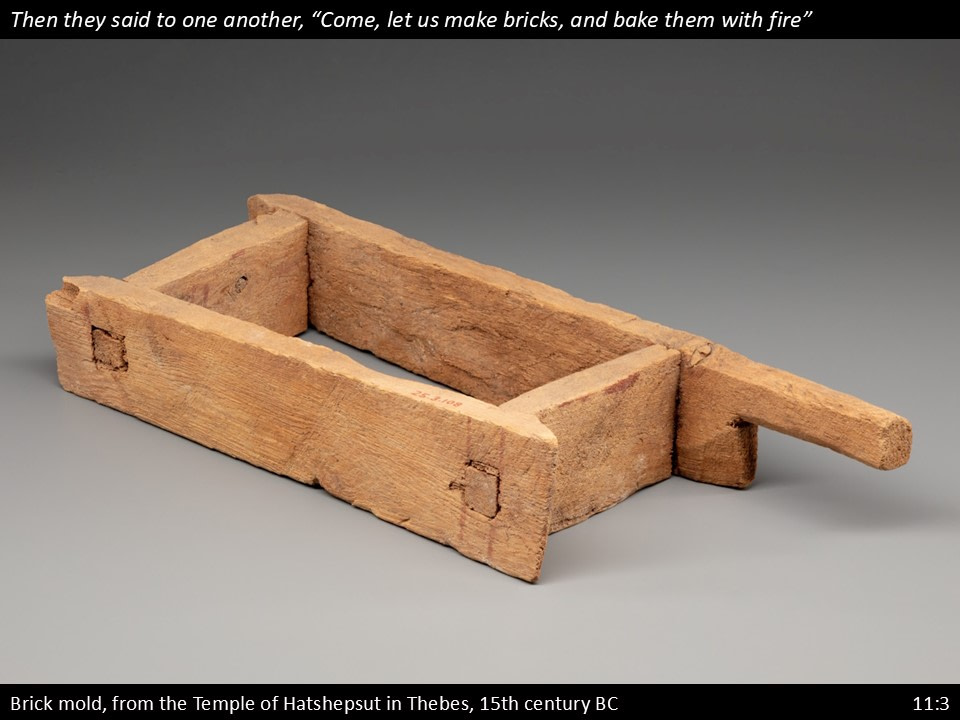
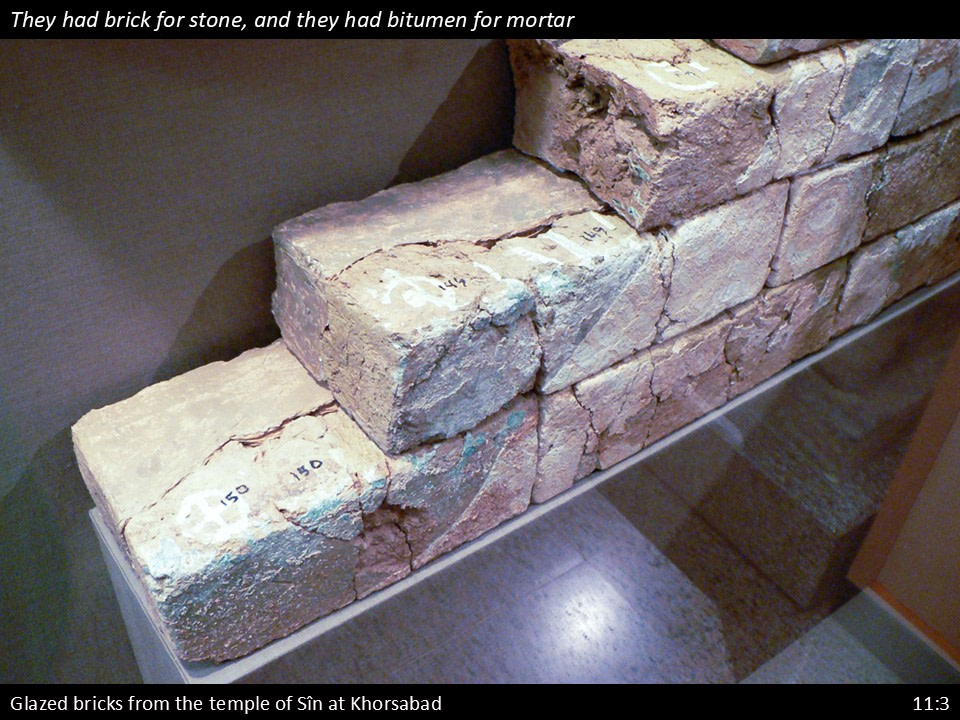
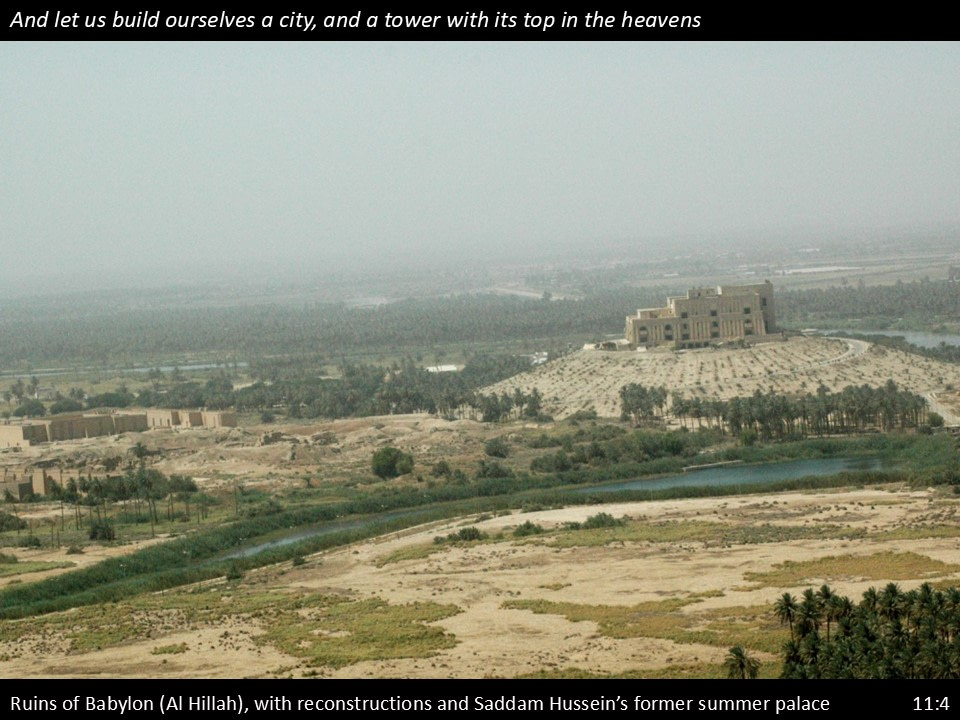
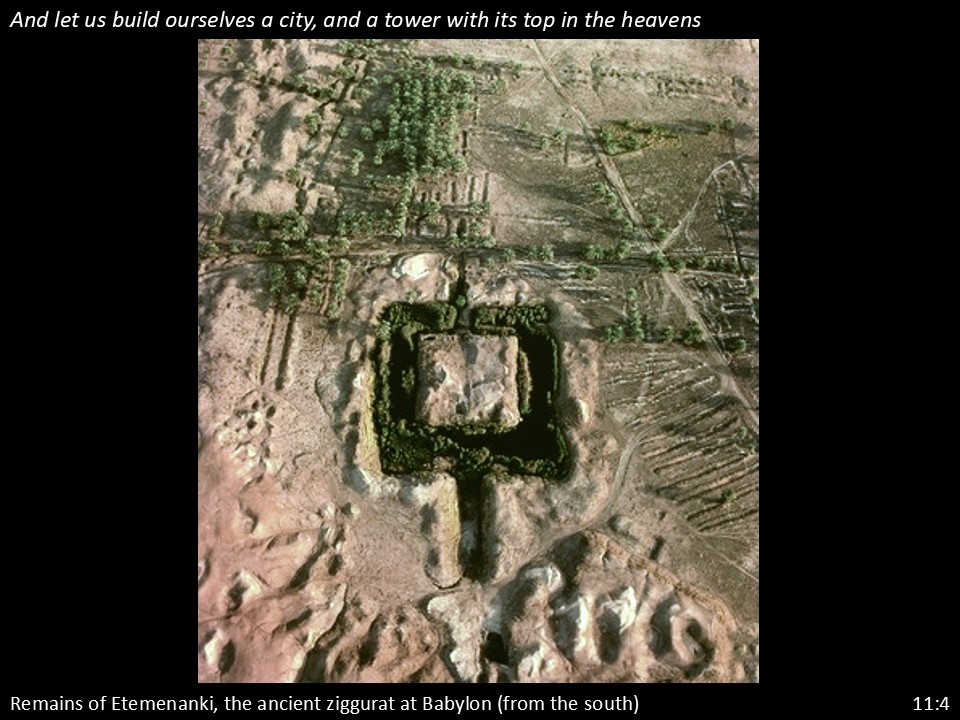
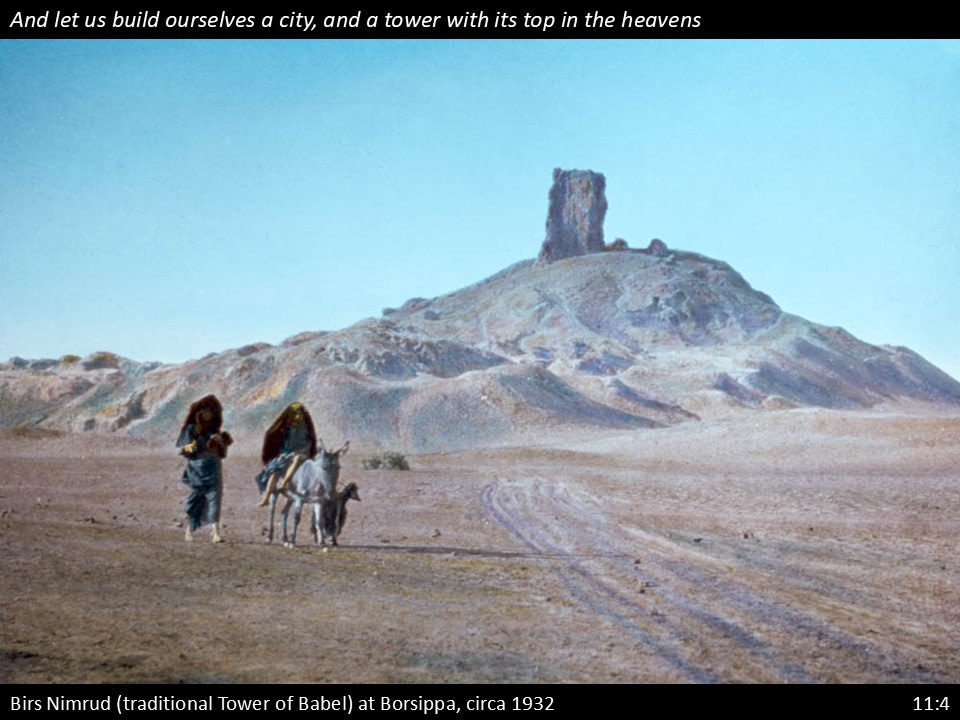
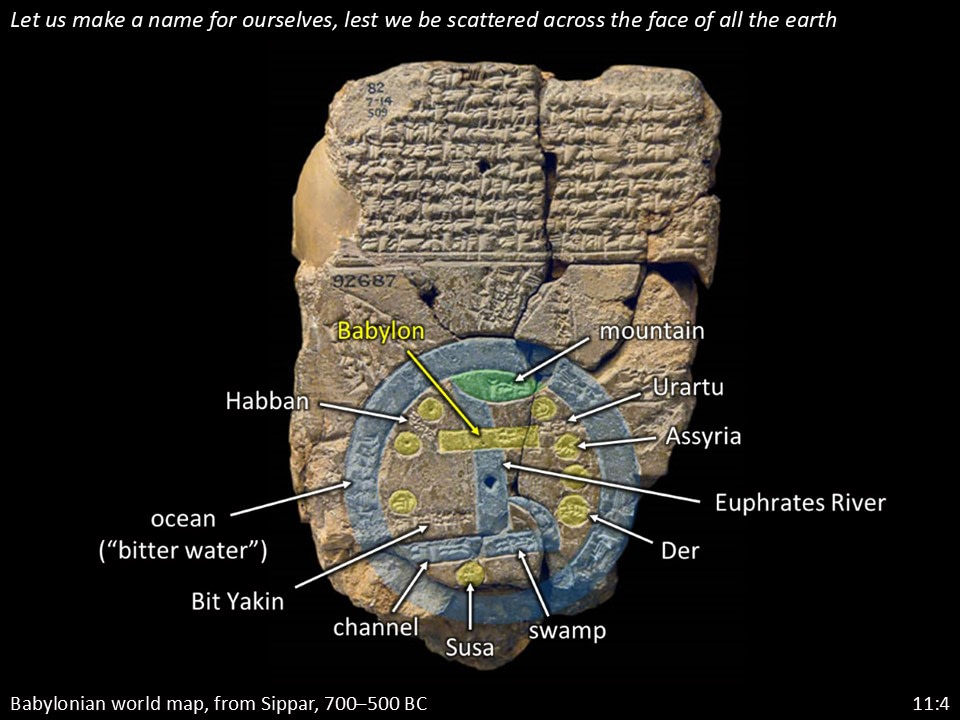
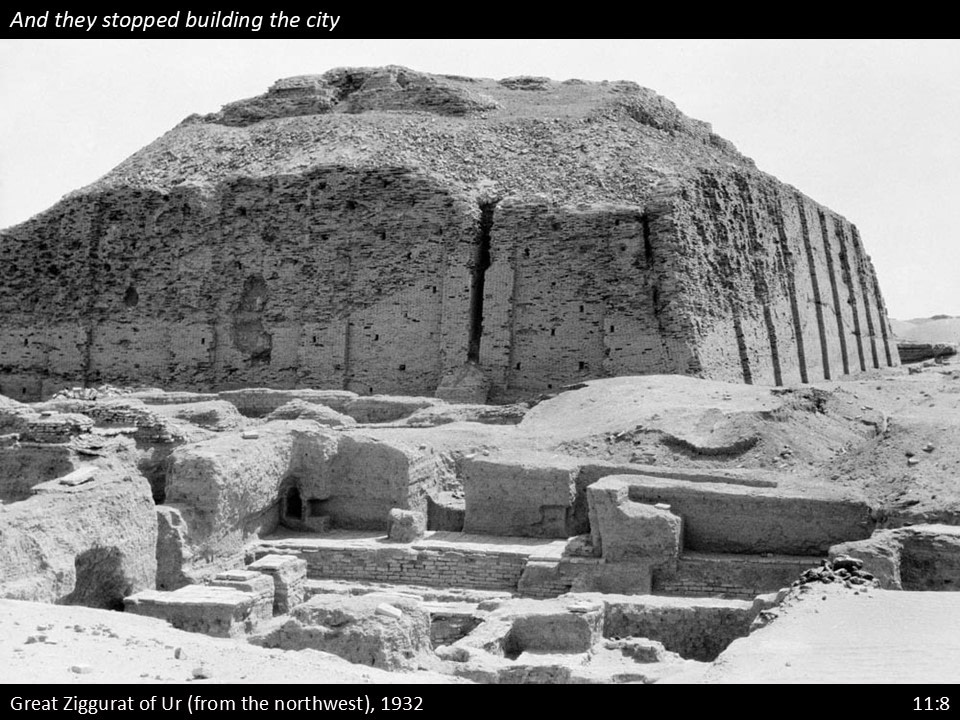
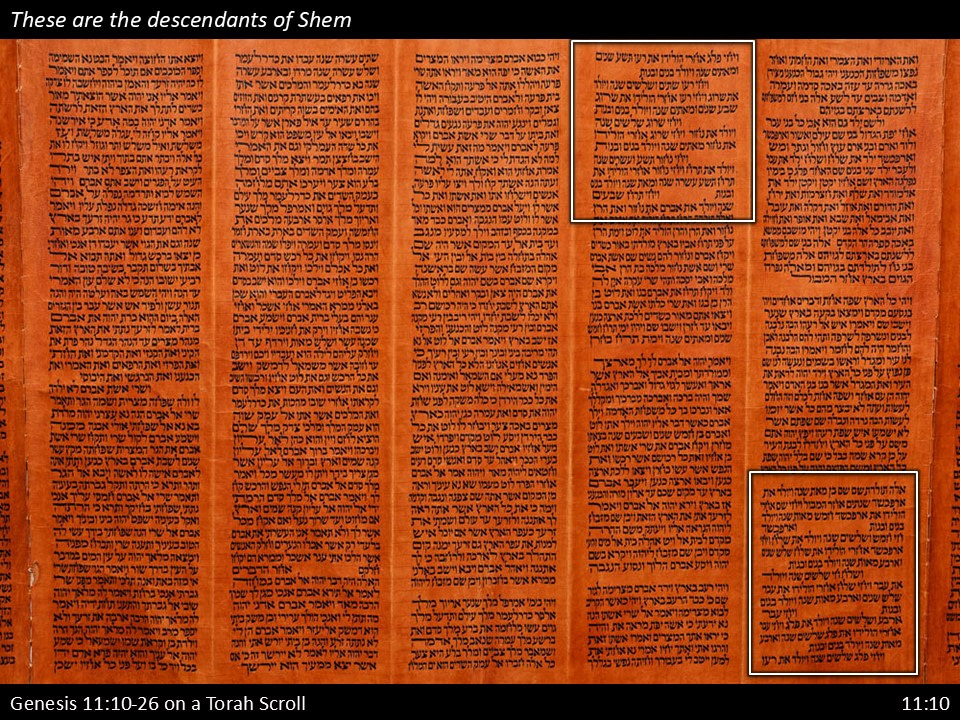
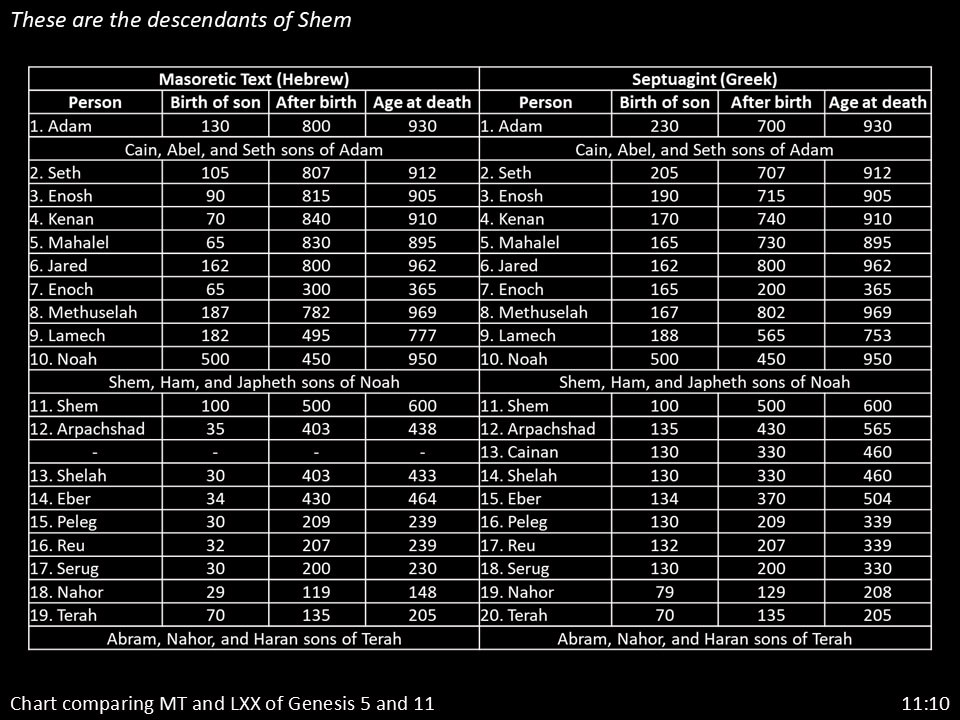
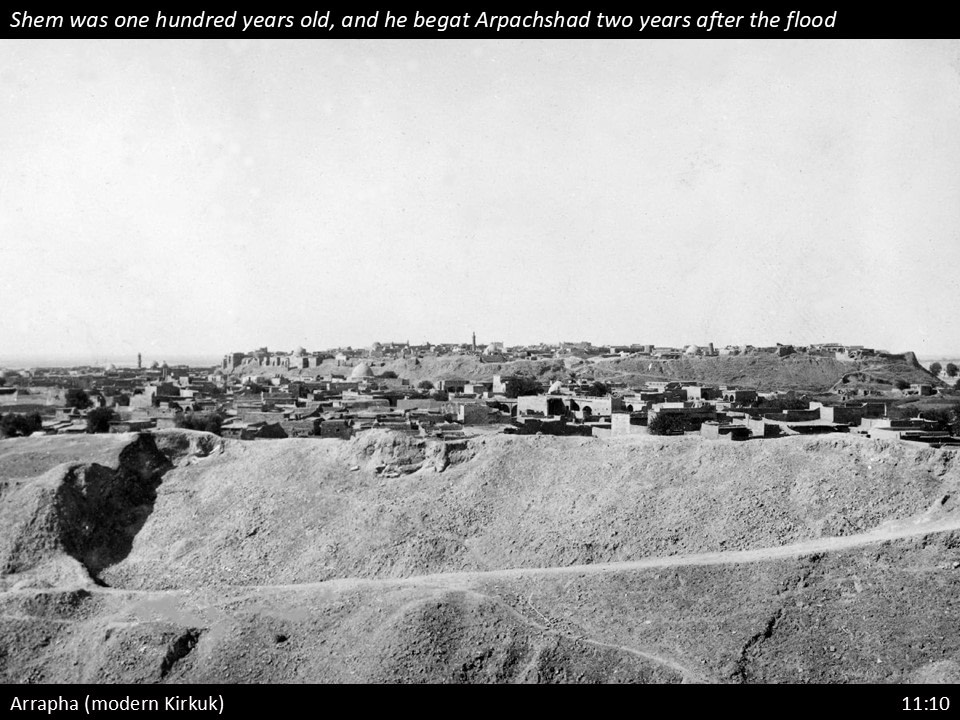
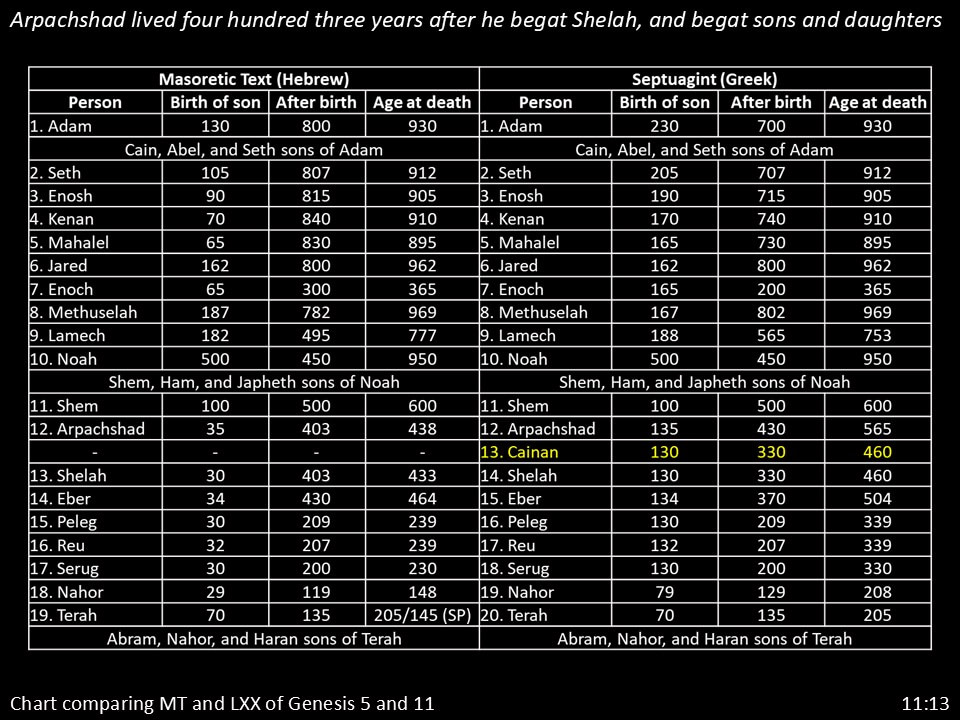
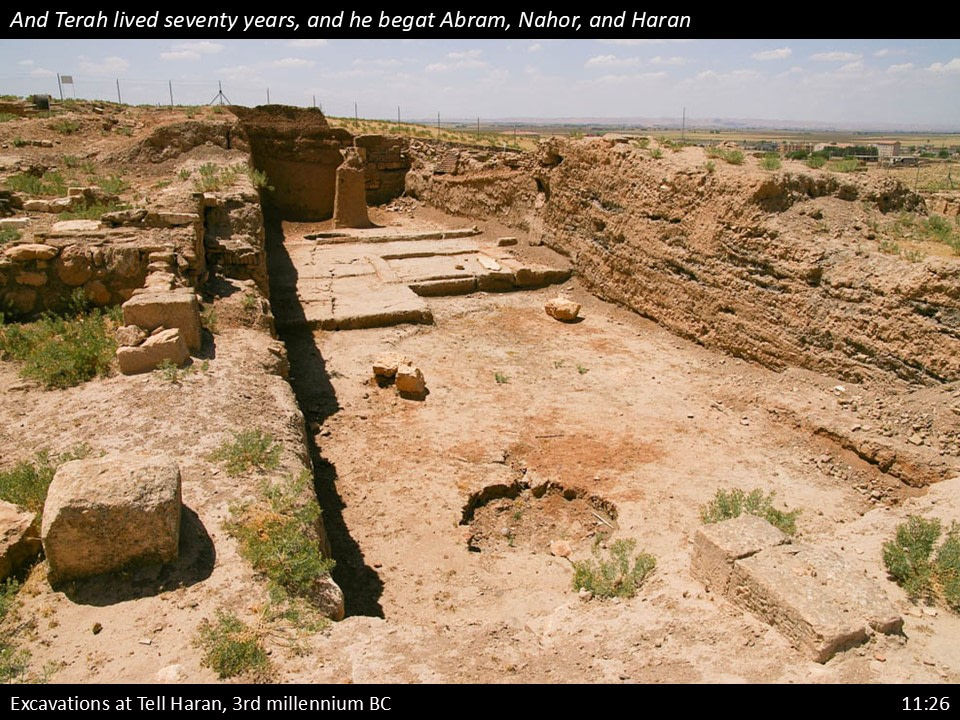
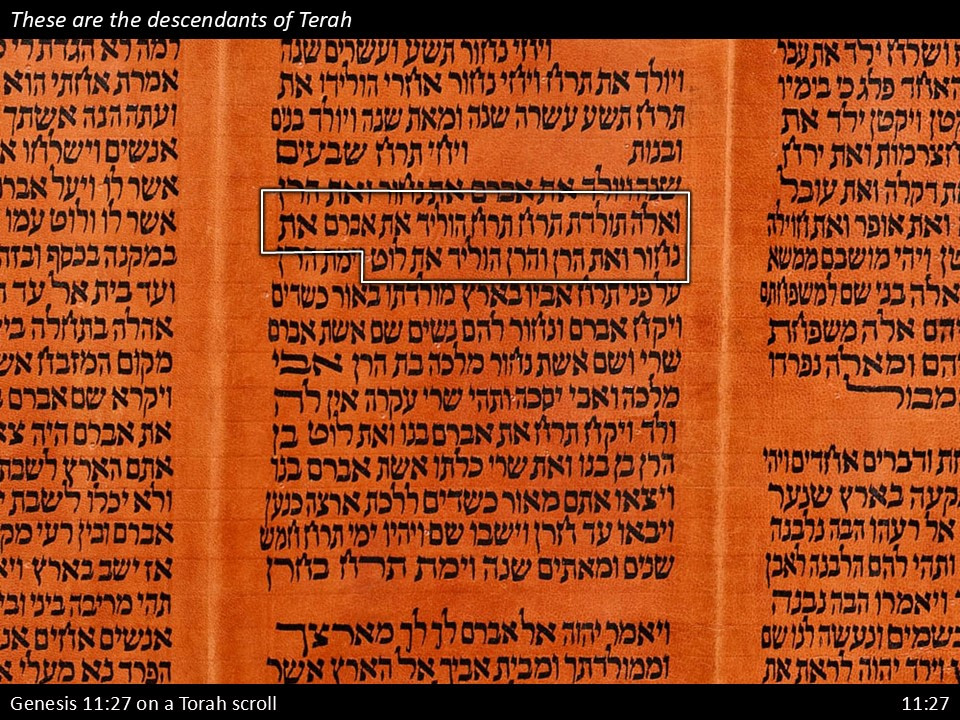
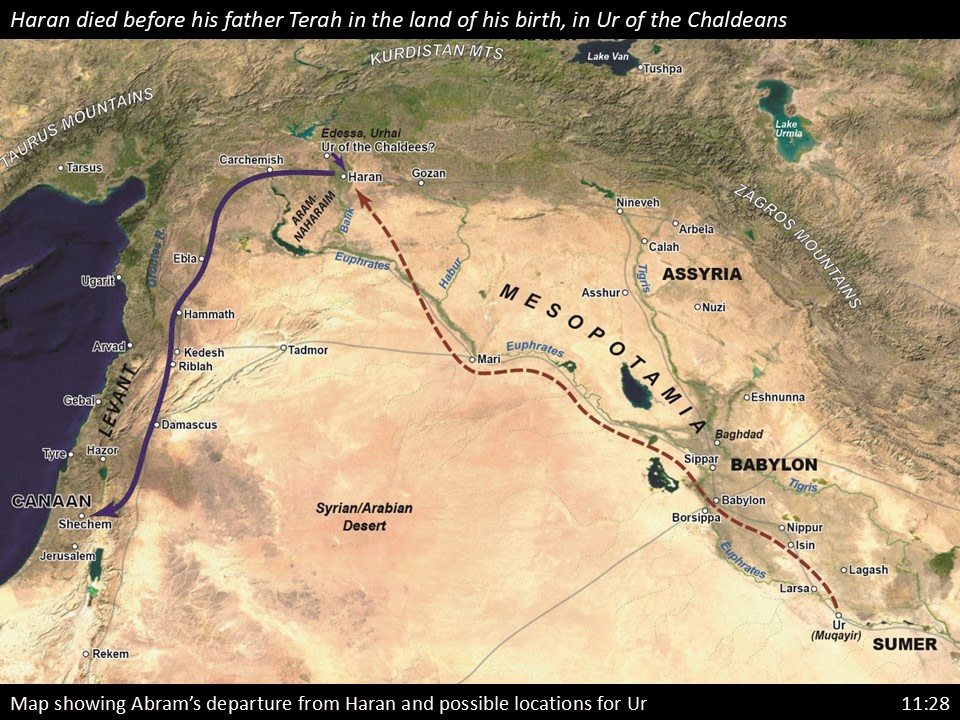
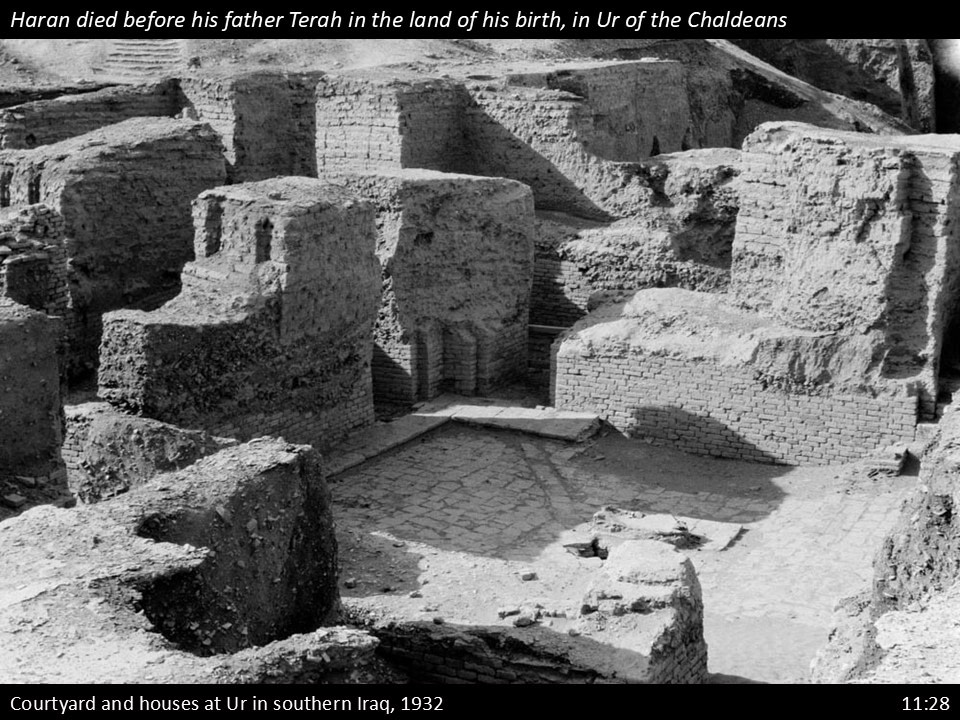
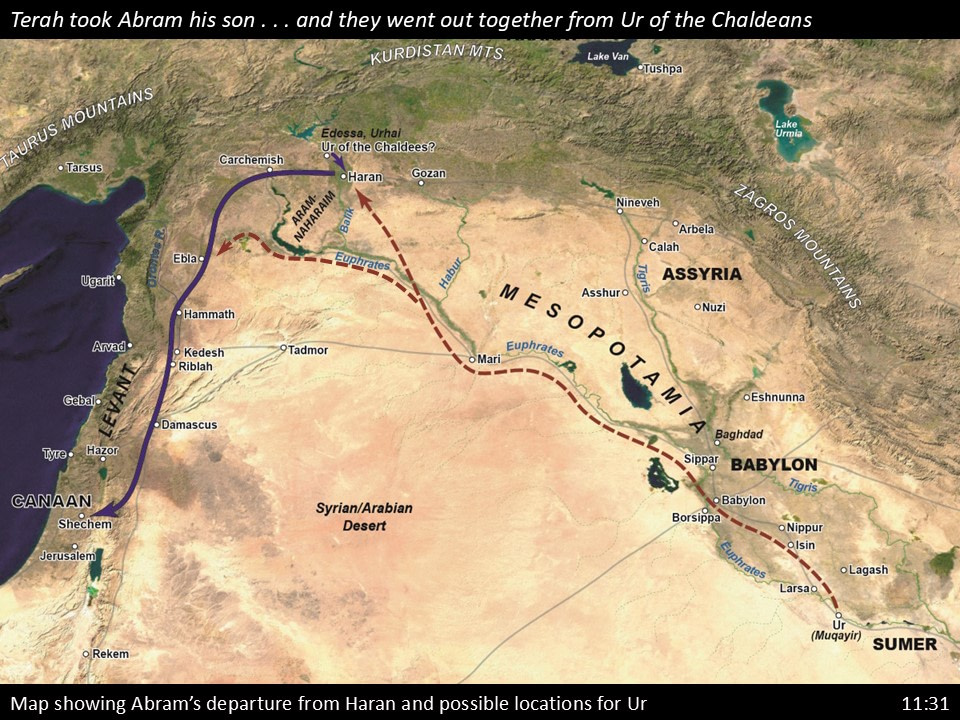
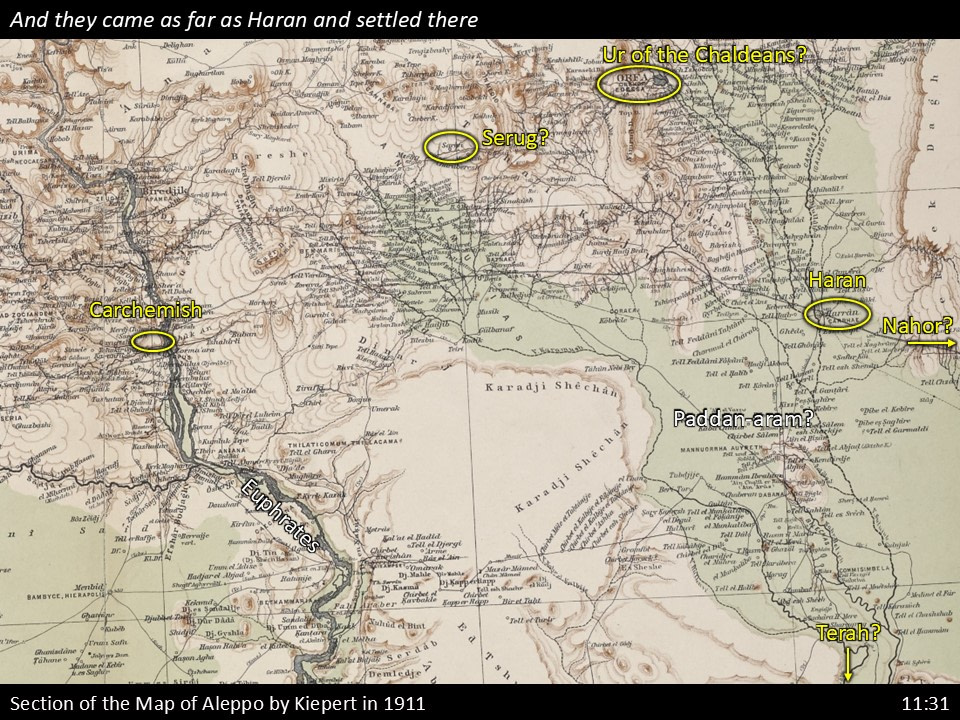
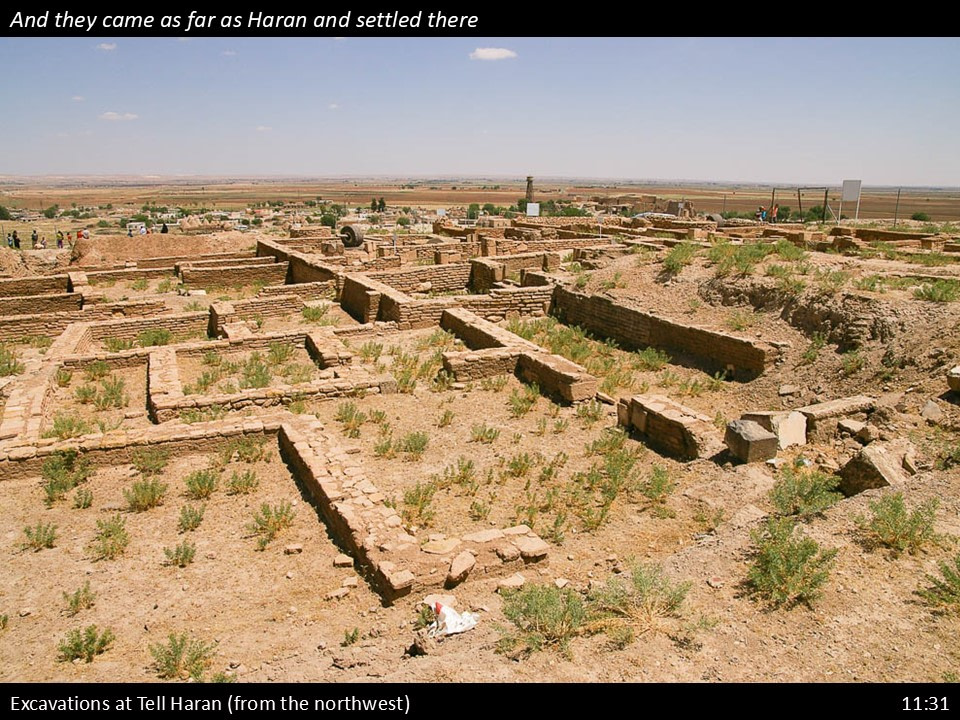
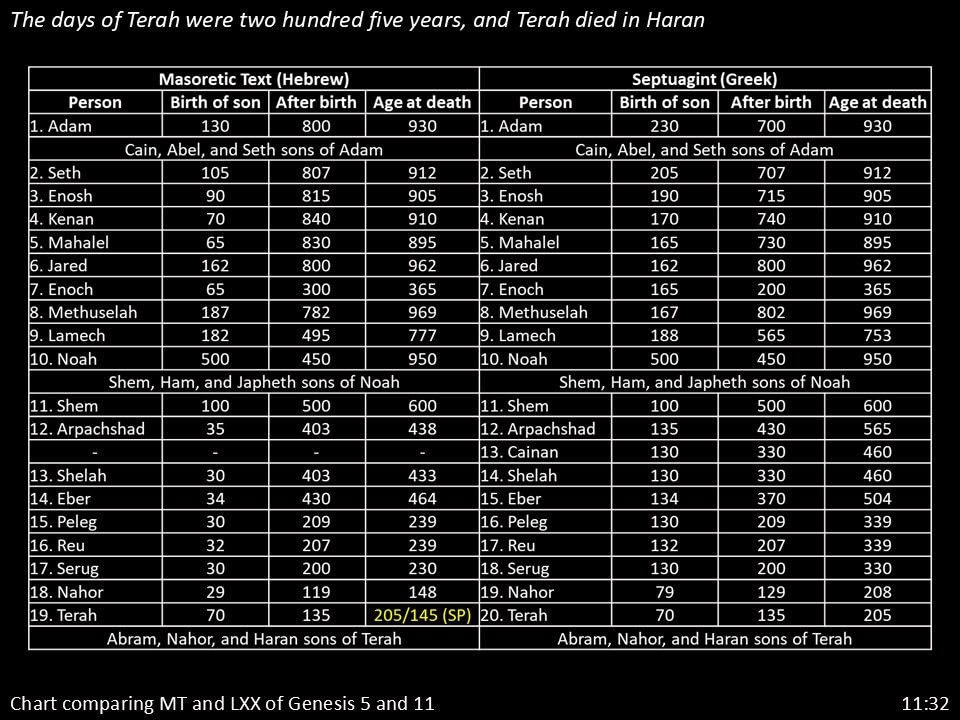
In verses 1-9, the nations are dispersed at Babel:
Note: The dispersion described in the Table of Nations in chapter 10 is likely a result of the account recorded in Genesis 11:1-9.
- The people of the world all spoke one language.
- People migrated to the valley of Shinar from the east.
- They planned to use oven-fired bricks and asphalt for the mortar to build a city and a tower, to make a name for themselves, lest they are scattered over the earth.
Note: This plan not to disperse was in direct opposition to God’s command to “fill the whole earth” (Genesis 9:1).
- God came down and looked to see what they were doing.
- God viewed their unity as the source of their disobedience.
- So the LORD said, “Come, let US confuse their language.”
Note: The word translated “LORD” is Jehovah, the proper name of God, and the “Us” is the first-person plural. In some translations, when Jehovah, the proper name of the LORD, is used, it is placed in all capital letters.
- The Lord scattered the people over the whole earth, and they stopped building the city.
- It is called Babylon because it is there; the Lord confused their language and scattered them over the earth.
In verses 10-26, the family records of the descendants of Shem through to Abram are recorded.
Note: This is a vertical genealogy establishing the link between Noah, who was blessed God, through Shem, and on down to Abram, who was also blessed by God.
In verses 27-32, the family records of Terah, who was the son of Nahor, are recorded:
- Terah had three sons: Abram, Nahor, and Haran, and Haran fathered Lot.
- Terah took Abram, his grandson Lot, and Abraham’s wife, Sarai, and journeyed toward Canaan, but they stopped and settled in Haran.
Note: We know from Joshua 24:2 that Terah was an idolater who worshipped other gods.
Genesis 12
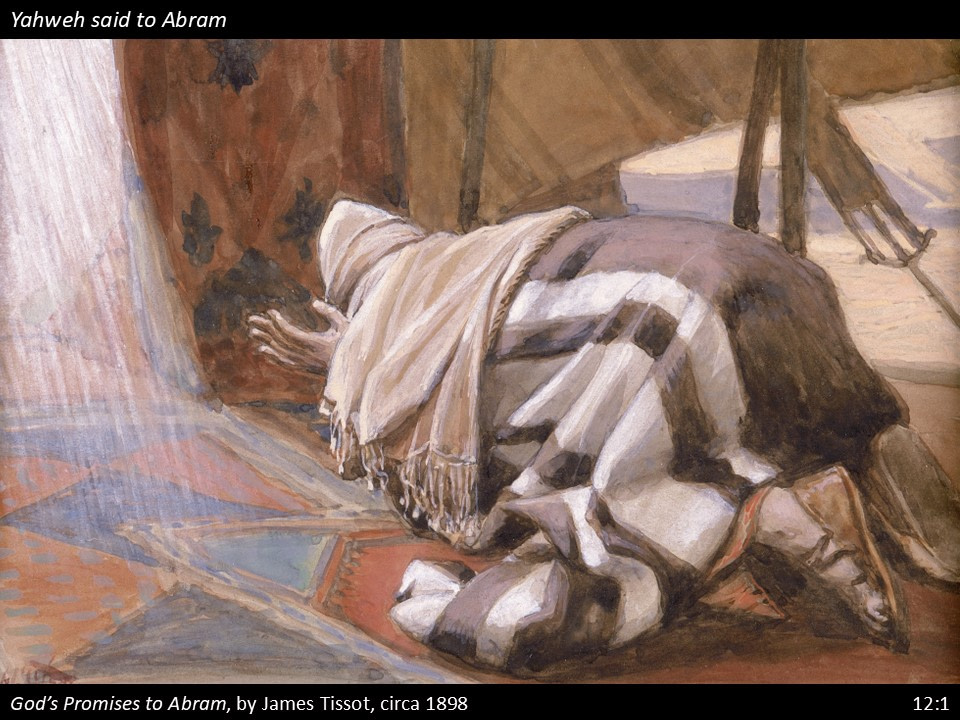
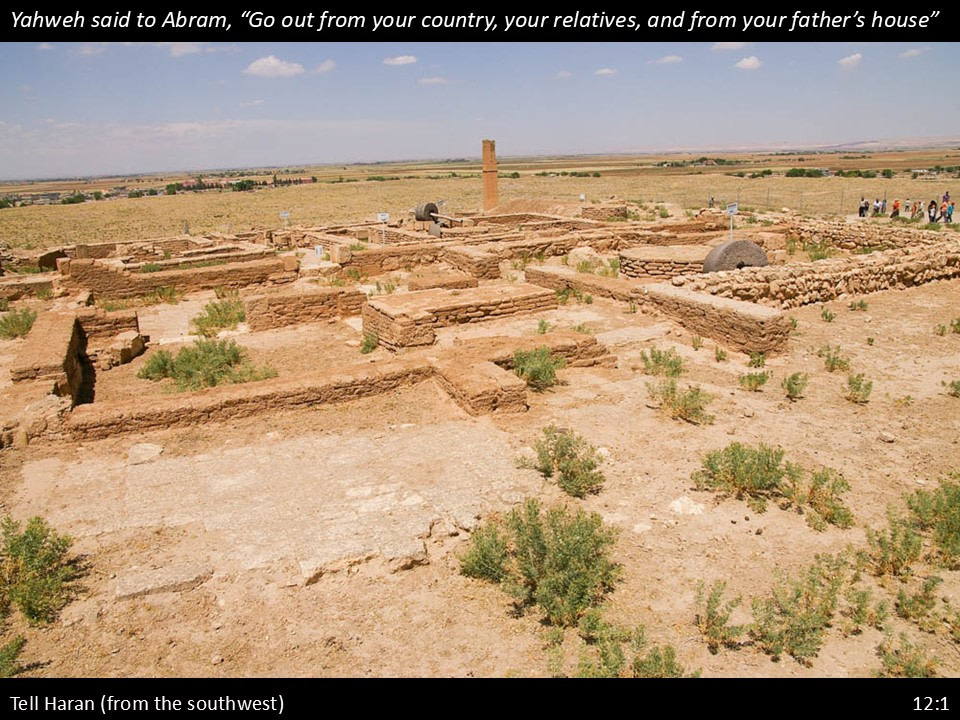
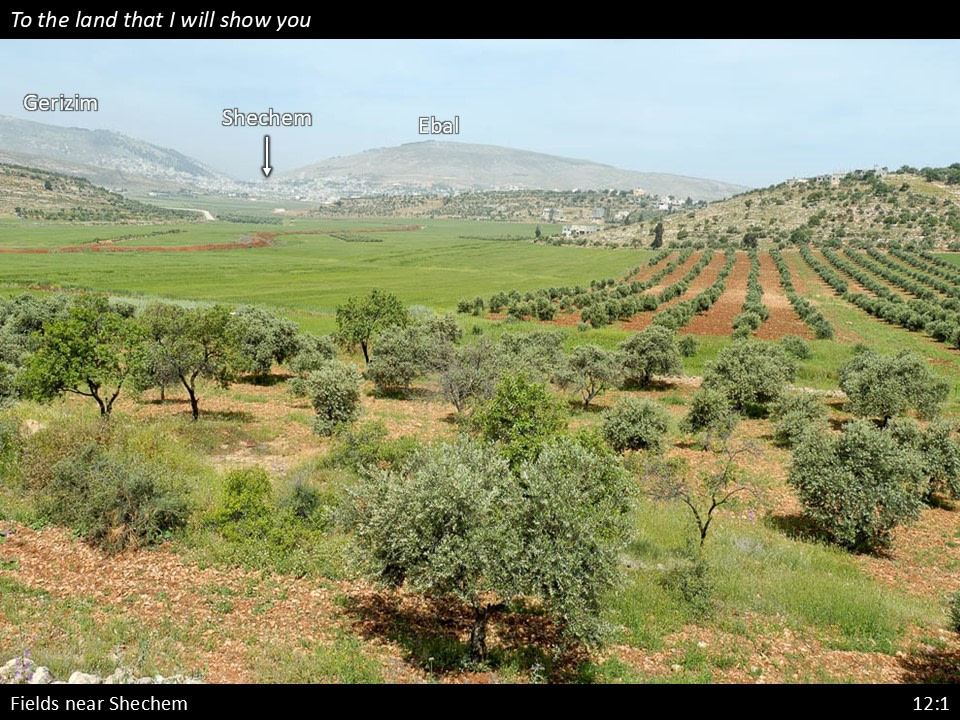
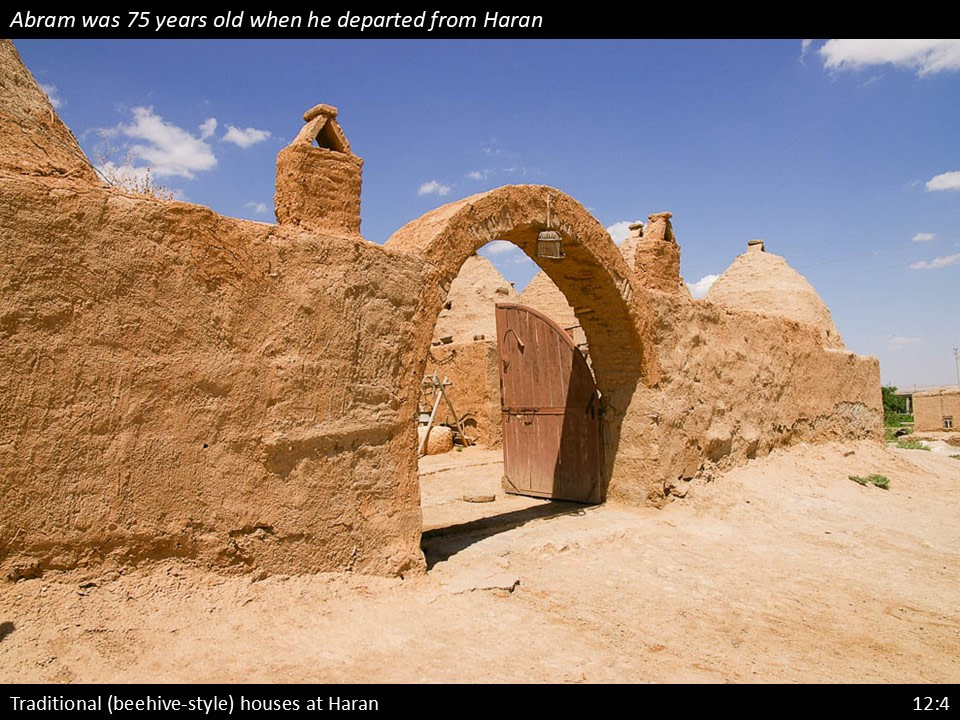
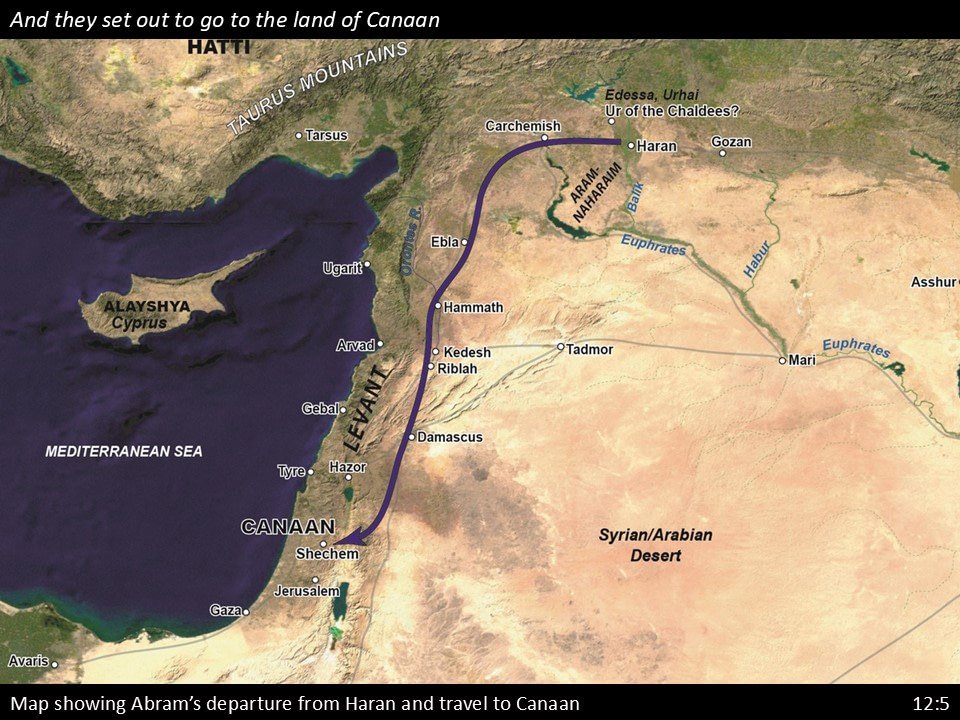
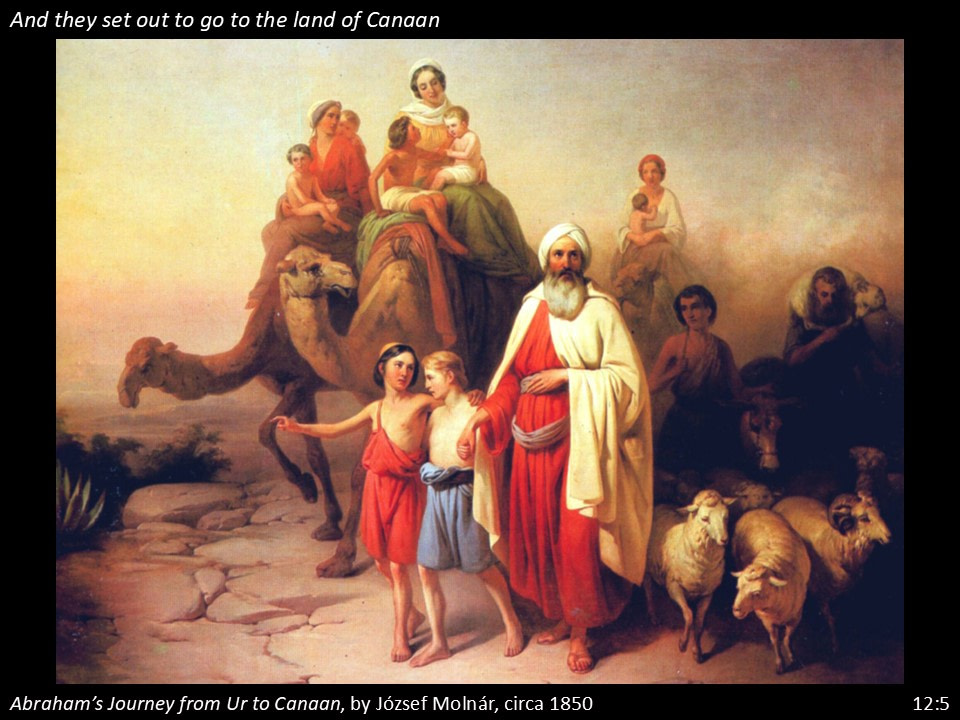
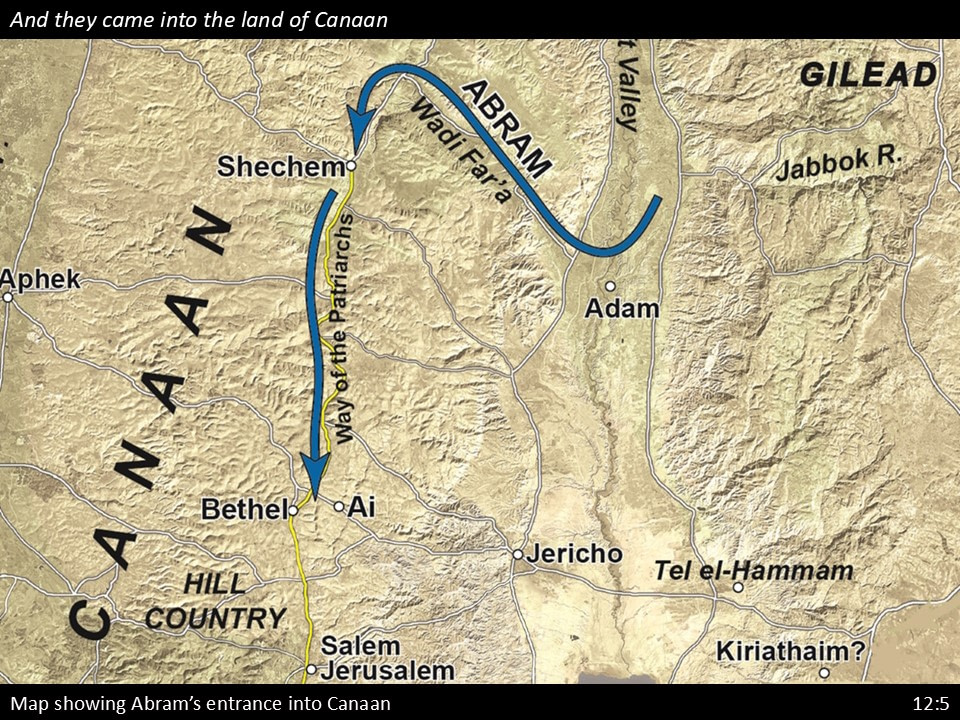
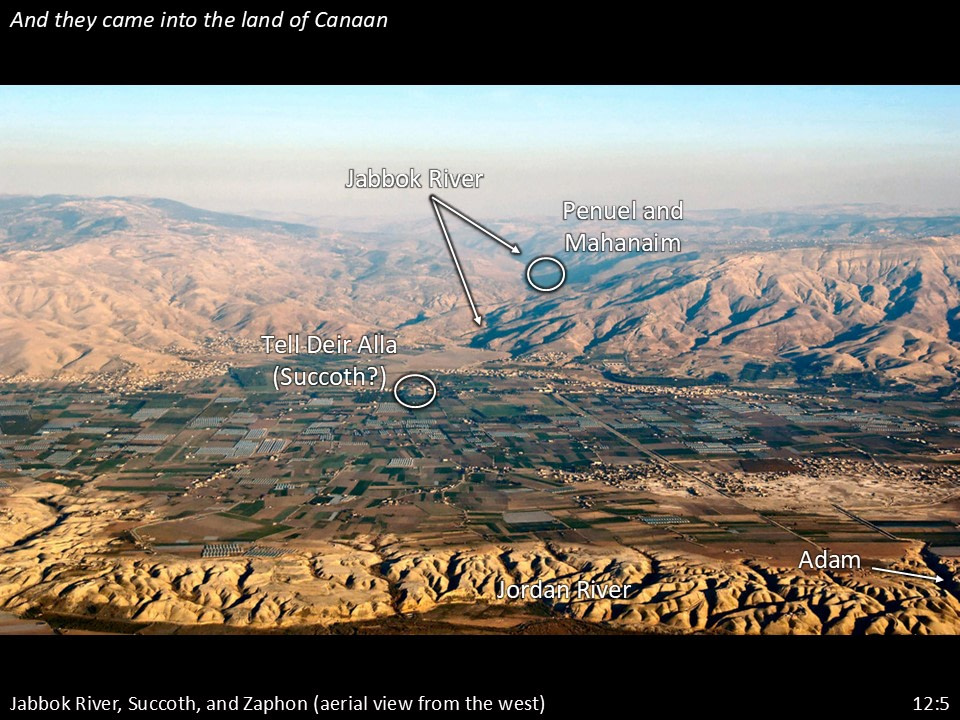
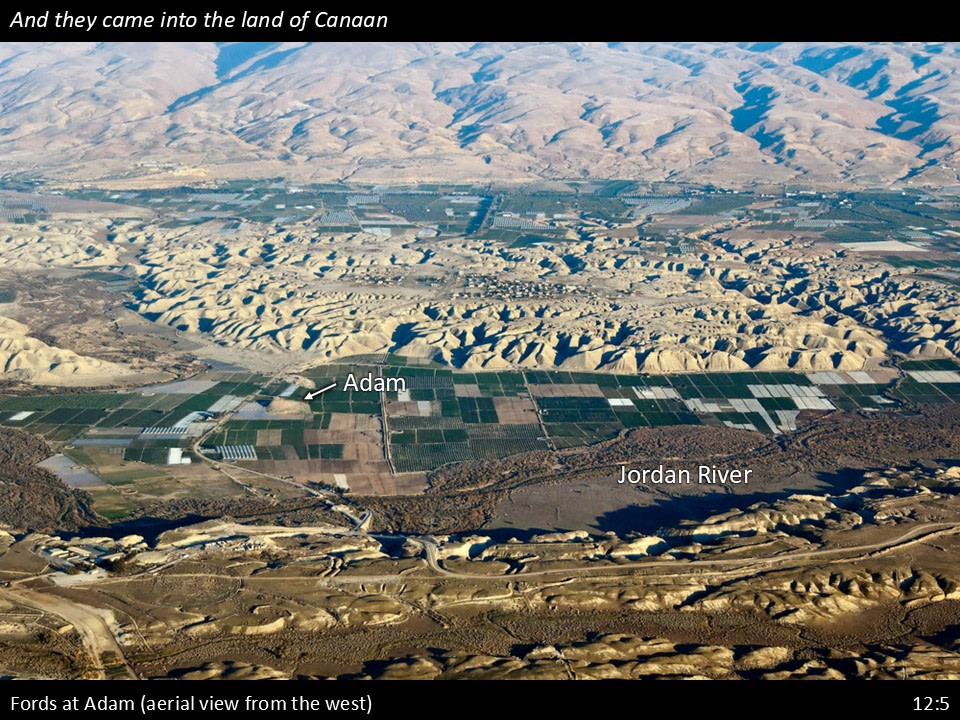
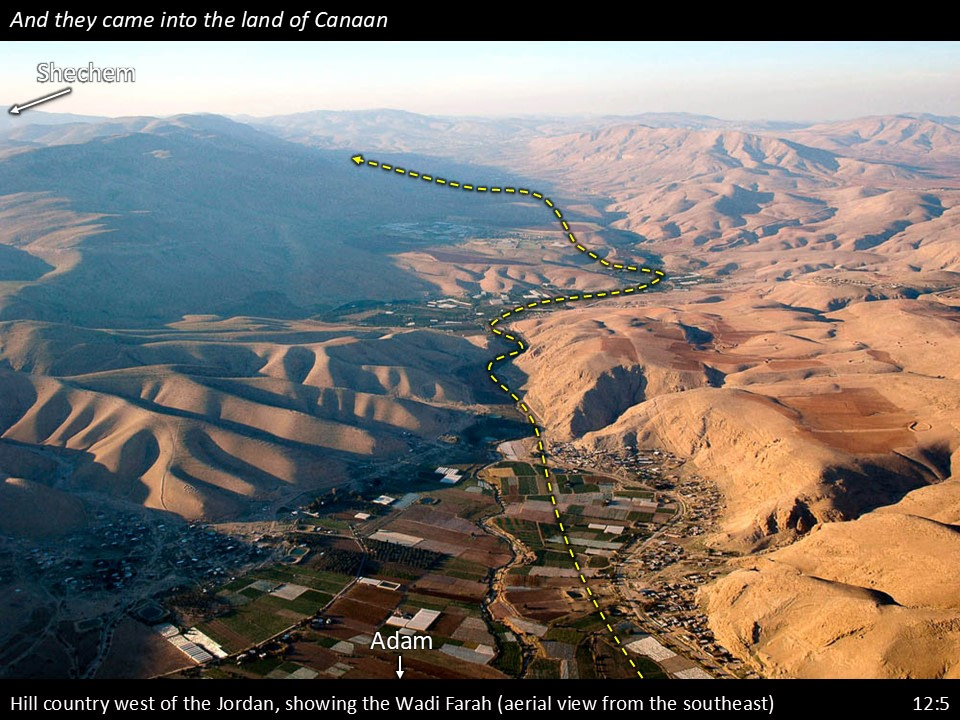
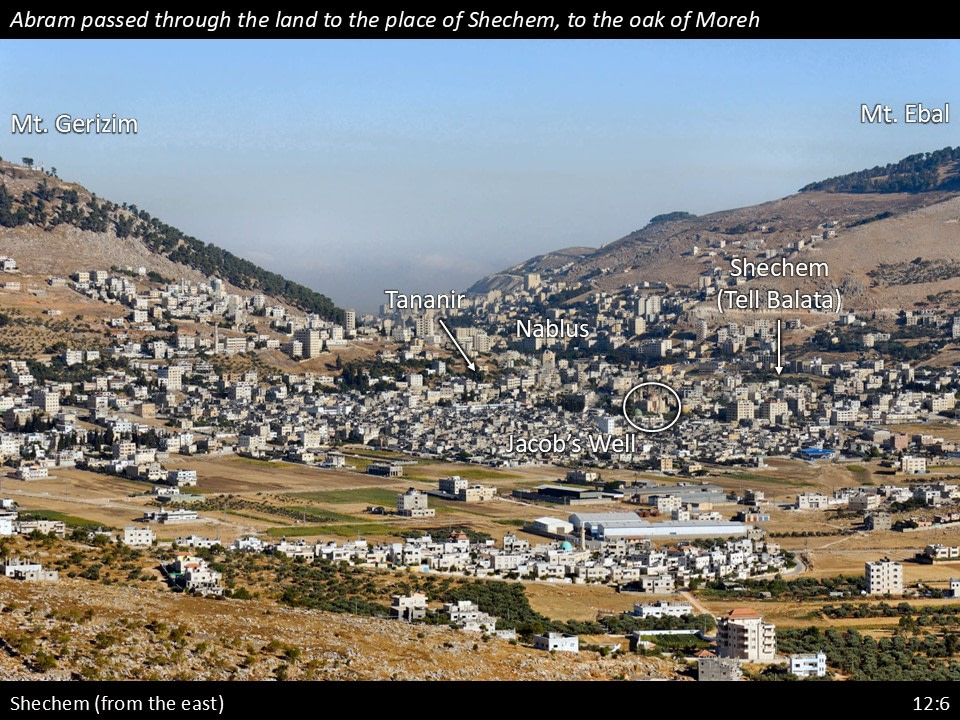
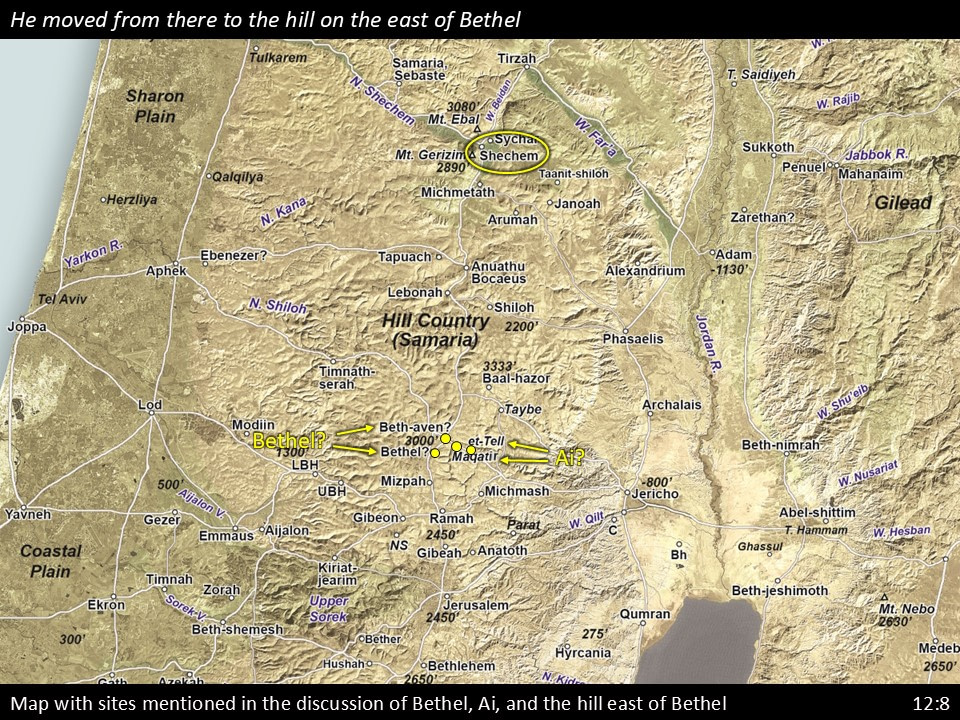
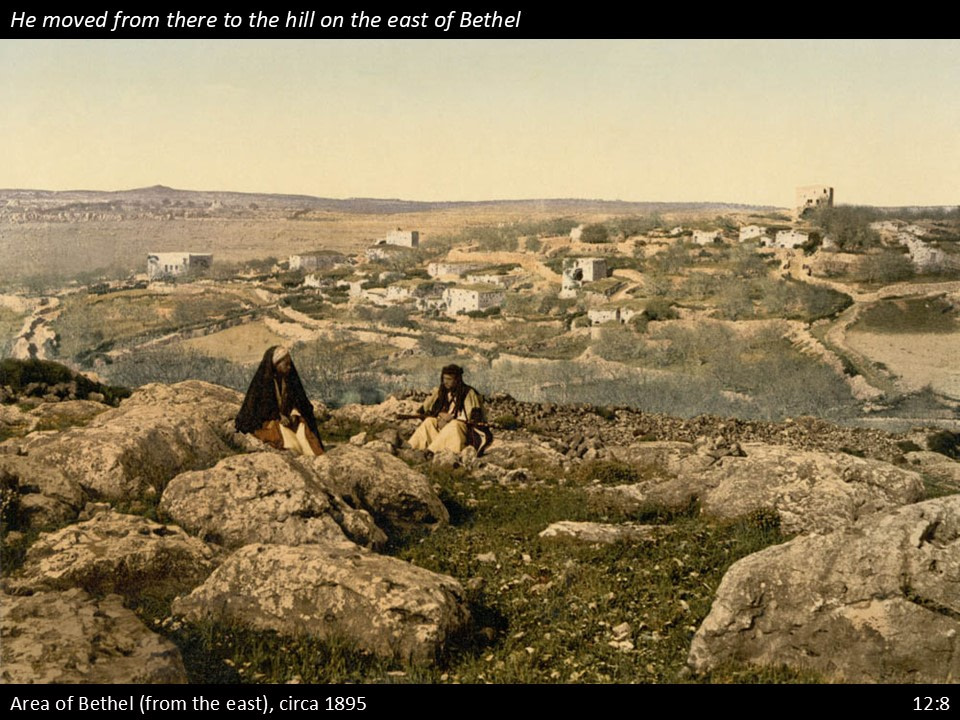
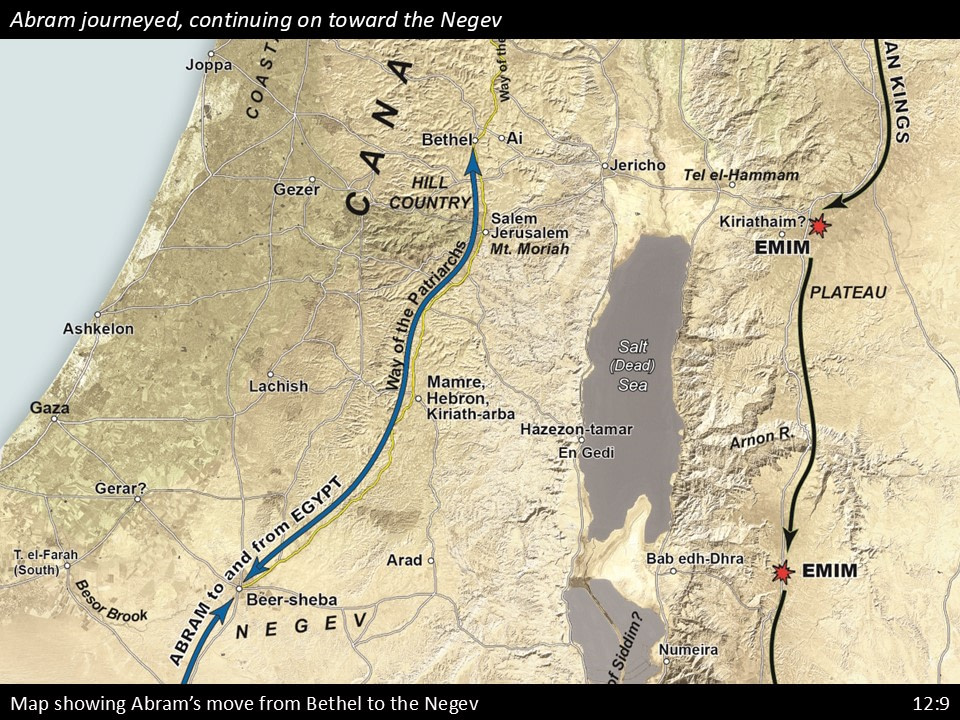
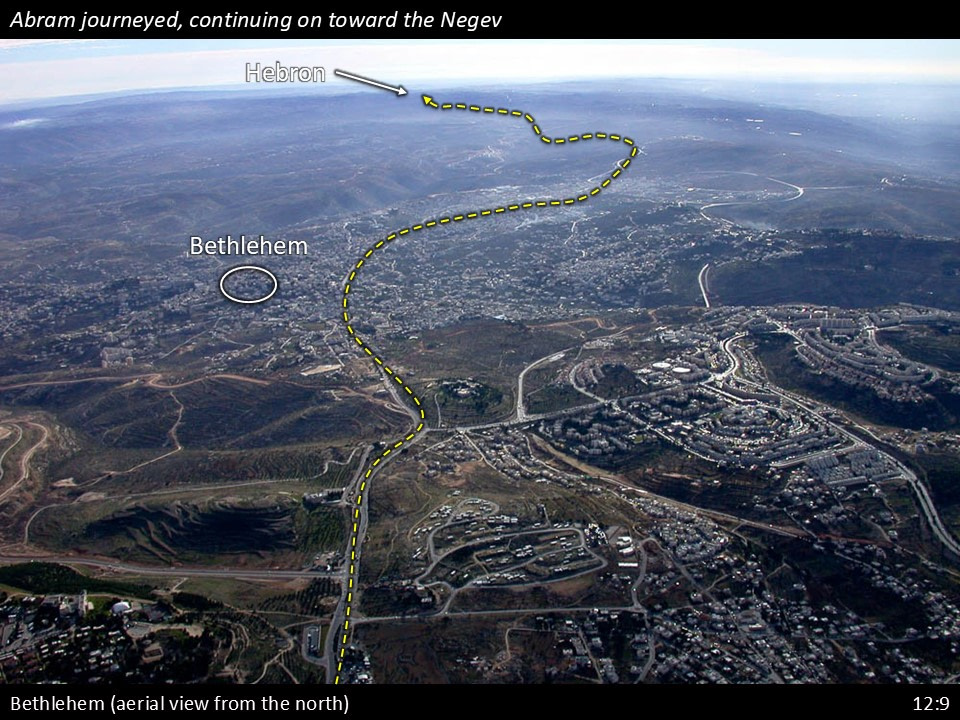
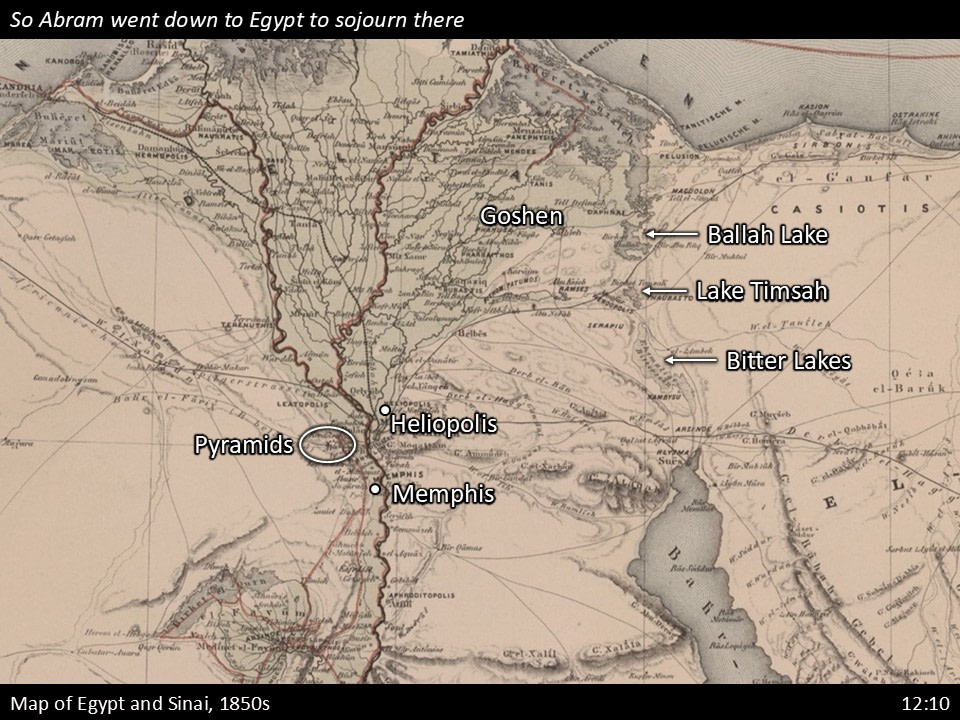
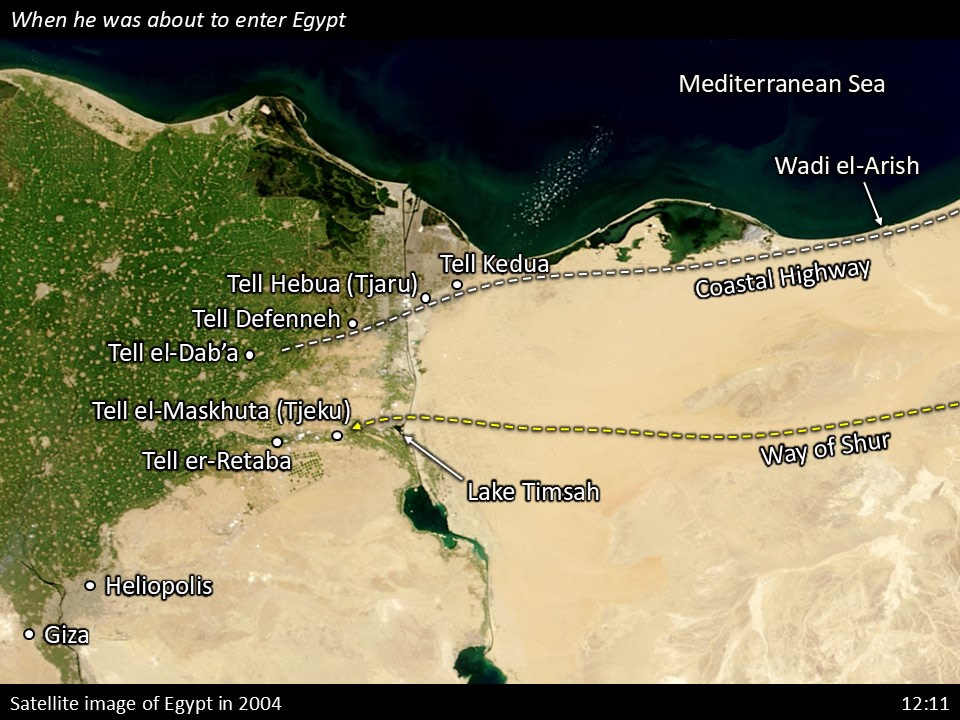
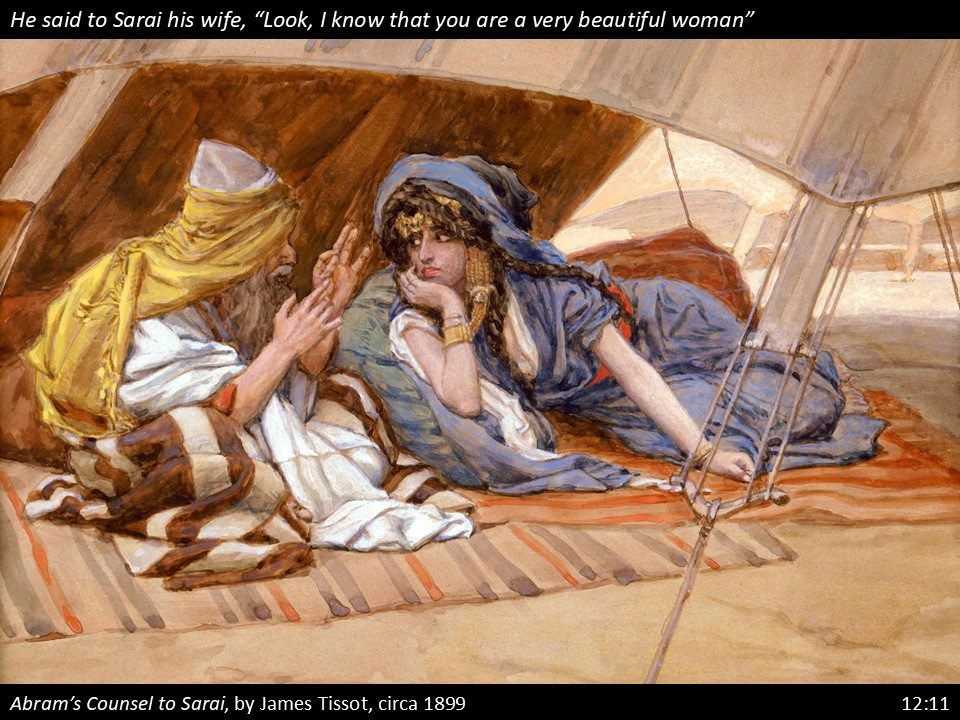
In verses 1-9, God calls Abram:
- The Lord called out to Abram and told him to go with your relatives and leave your father’s land.
- Go to the land. I will show you, and I will make you a great nation, and bless you.
- I will bless those who bless you and curse those who curse you.
- So Abram went as the Lord commanded.
- At 75 years old, Abram took his wife Sarai and his nephew Lot and all their possessions and set out for Canaan.
- Abram arrived at Shechem, by the oak of Moreh.
- God appeared to Abram and said He would give this land to Abram’s offspring.
- Abram built an altar to the Lord.
Note: In verses 1-3, God’s blessing is dependent on Abram’s obedience. God gives Abram two imperative commands (leave, and go), then you will be blessed. Abram didn’t know where he was to go. He simply obeyed in faith.
Note: Shechem is north-central Israel by Mount Ebal.
Note: Verse 7a is the first of three times God appeared to Abram (see also Genesis 17:1, and 18:1).
Note: Verse 7b is the first of four altars Abram built to the Lord (see also Genesis 12:8, 13:8, and 22:9).
- From Shechem, Abram traveled to the hill country east of Bethel, and built another altar to the Lord, and called out to the Lord there.
- Then Abram journeyed in stages to the Negev (a desert south of Canaan).
Note: Verse 8 this is the first of three times Abram is recorded as calling out to the Lord (see also Genesis 13:4, and 21:3).
In verses 10-20, Abram journeys to Egypt:
- There was a famine in the land (of Canaan) because of little rain, so Abram took his family and went to Egypt.
- When they were about to enter Egypt, he told Sarai, because she was beautiful, if the people in Egypt thought they were married, they would kill him, to have her.
- Therefore, he asked her to say they were brother and sister.
- When they entered Egypt, the Egyptians did see that Sarai was beautiful, and Pharaoh took her to be in his household (harem).
- Pharaoh treated Abram well because of Sarai, and he became very rich because of her.
- But the Lord struck Pharaoh and his house with severe plagues because of Sarai.
- Pharaoh confronted Abram with the truth; that Sarai was, in fact, Abram’s wife.
- Then Pharaoh sent Abram and Sarai away with all their possessions.
Note: Sarai was Abram’s half-sister (see Genesis 20:12). In that culture, someone who wanted to marry Sarai would have to negotiate with her living male relative (Abram) to secure permission to marry her.
Some thoughts for additional consideration:
- In Genesis 12, God called Abram out of an idolatrous family (Abram’s father, Terah did not follow God, see Joshua 24:2). Abram responded to God’s call in faith, and he obeyed God’s instructions. He received the promised blessing. Right afterward, his faith was tested during the famine when he went to Egypt.
- The same sequence often occurs in our lives today. 1) We are called from sin, and we follow God in faith. 2) We obey God, and we receive promised blessings. 3) Our faith is tested.
What did you notice in your study today? Feel free to visit the website and leave a question or a comment.
Prayer Request? It is our honor to pray for you. You may write to us with your prayer requests at prayer@biblestudydaily.org.
Tomorrow: Genesis 13-15



















